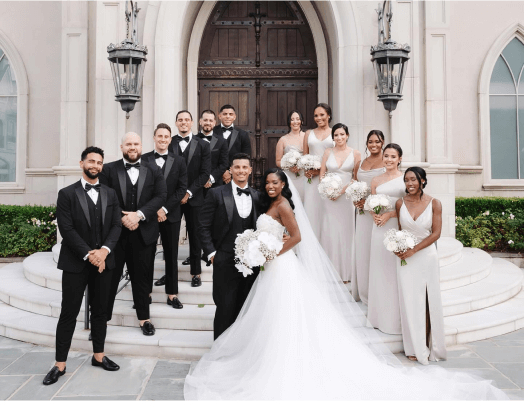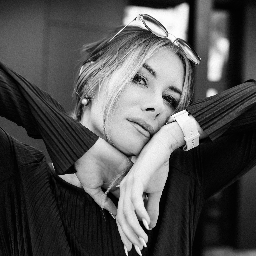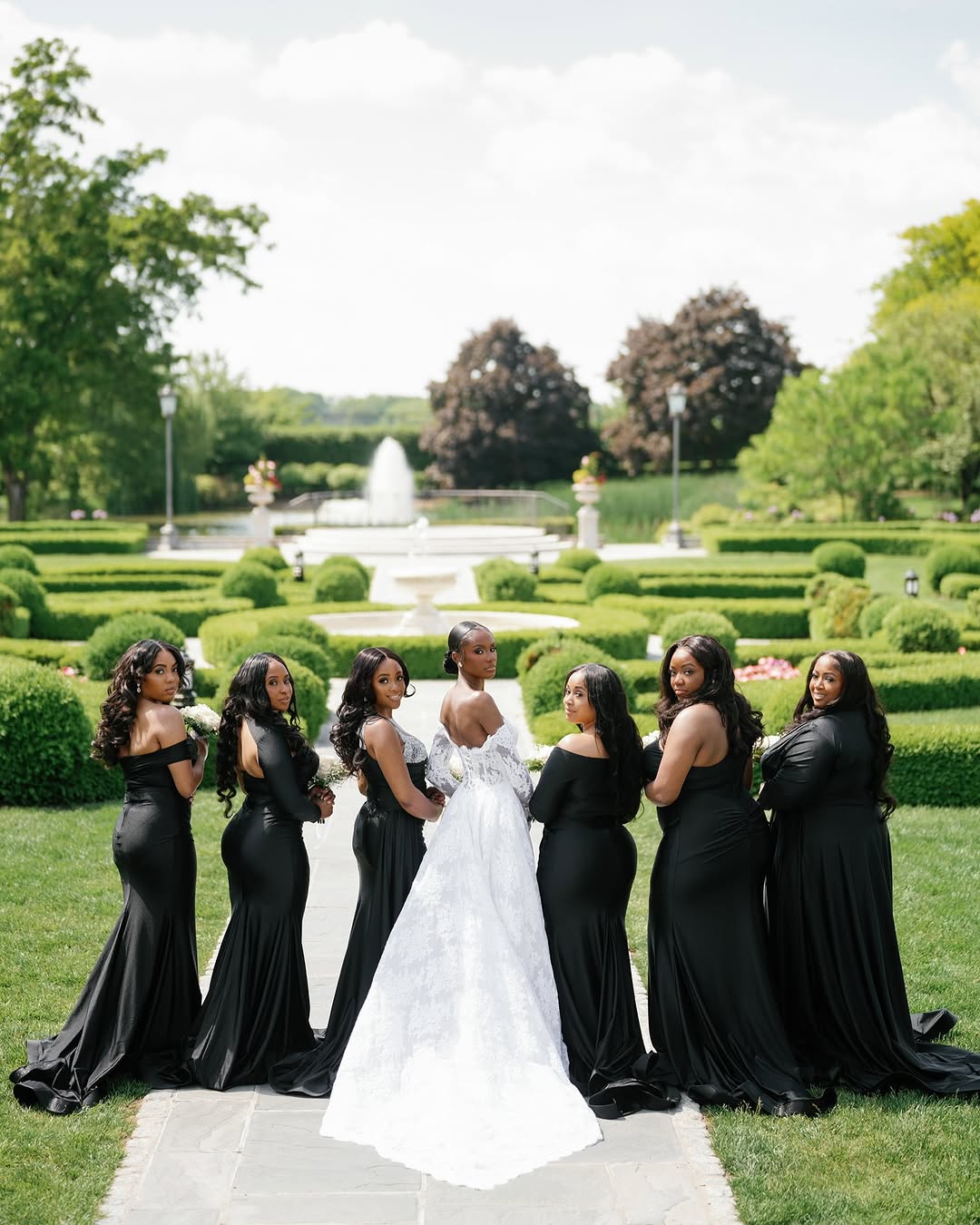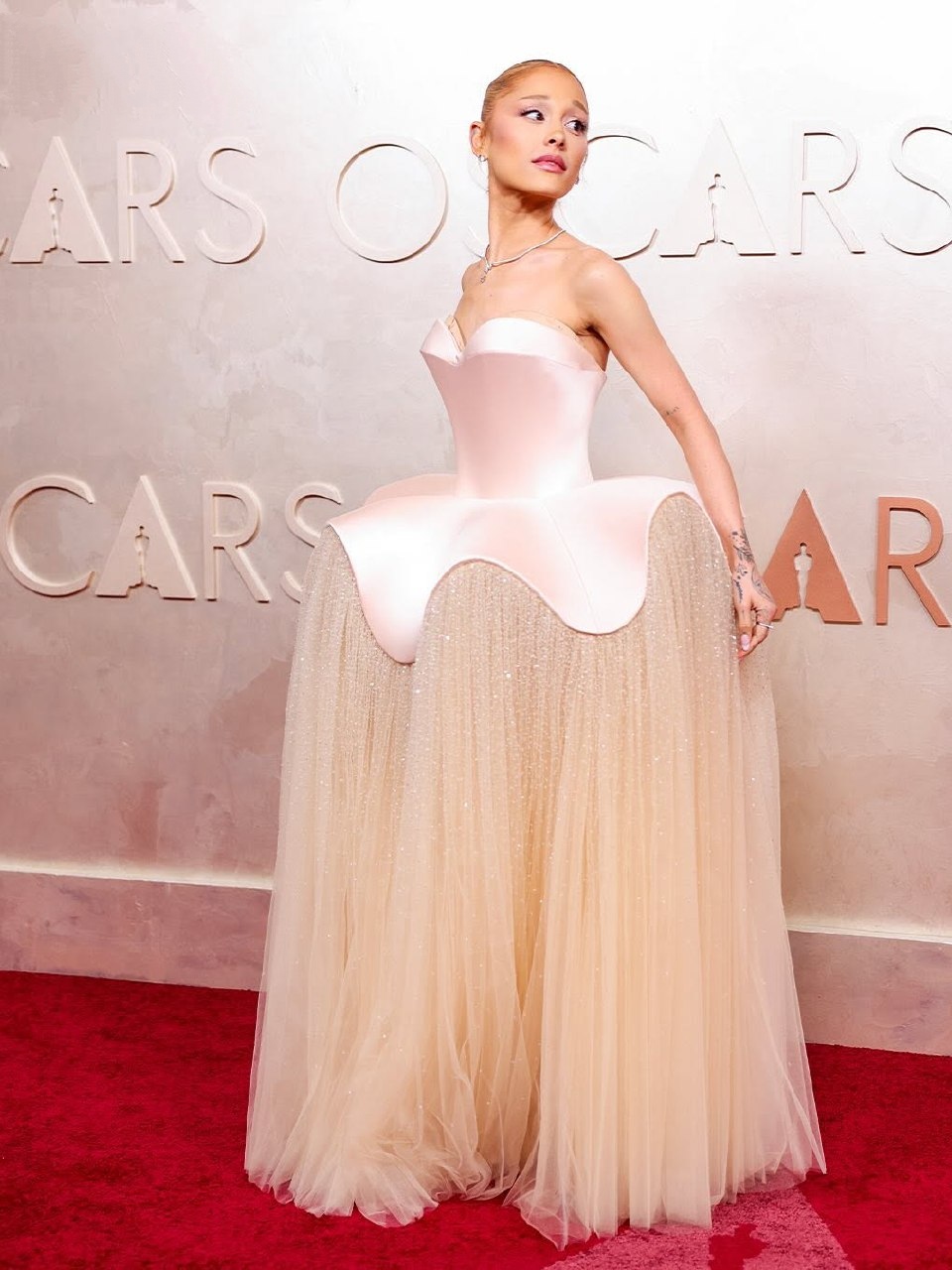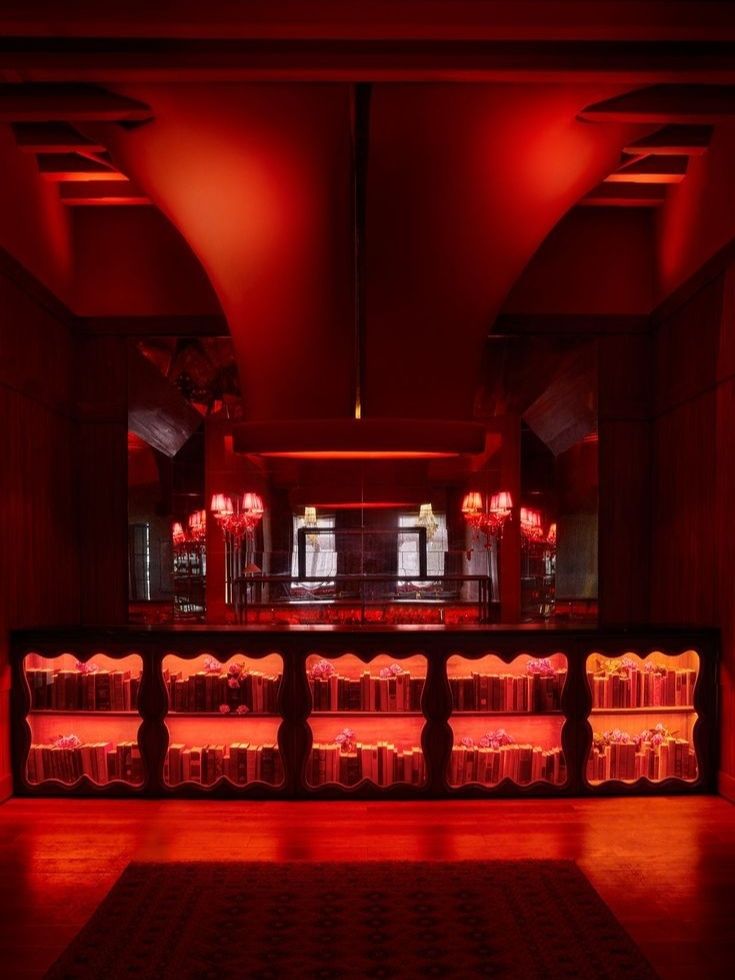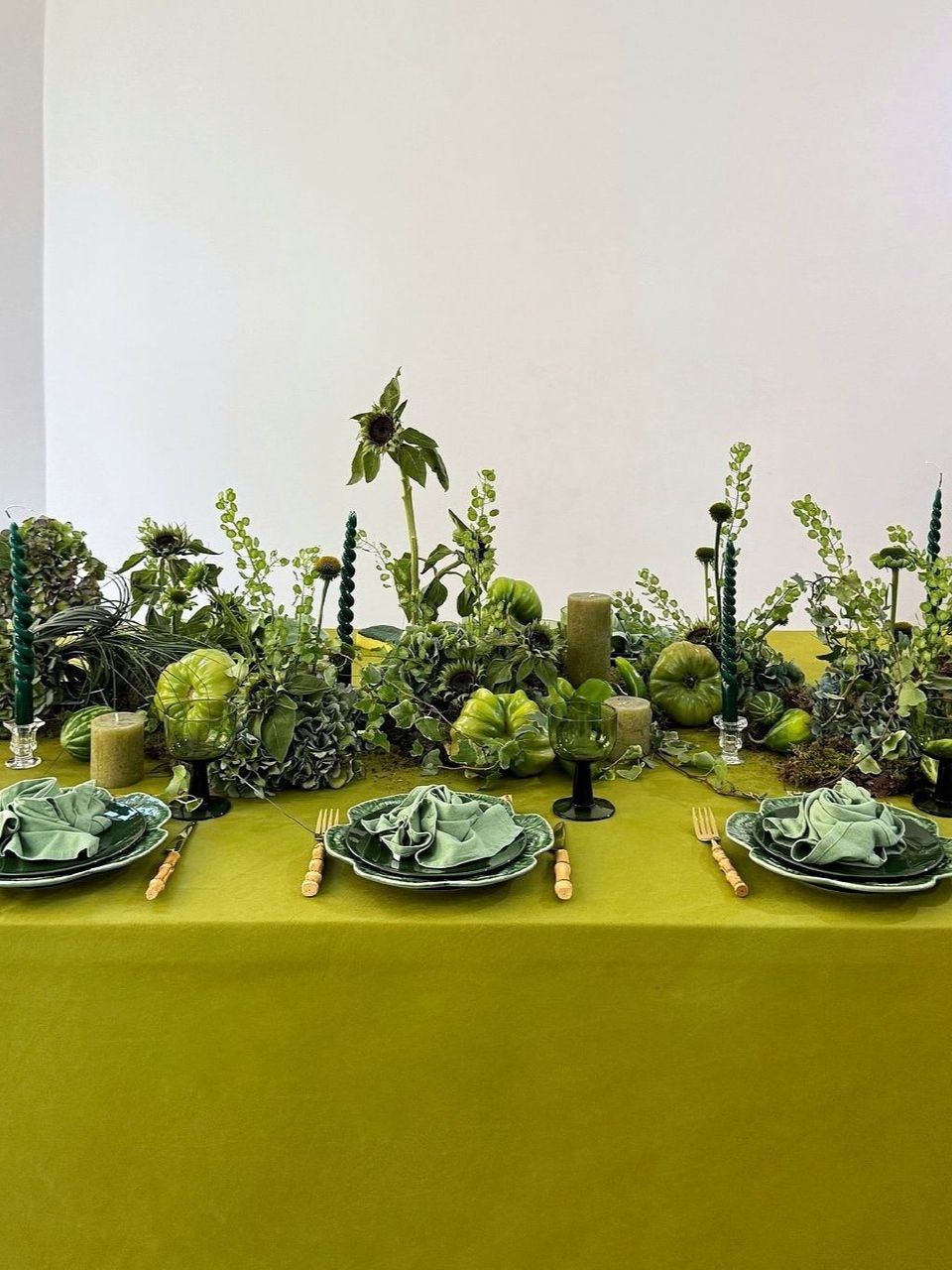Multicultural Weddings in 2025: Fusion Trends to Watch
- Author: Natali Grace Levine
- Reading time: 6 min 47 sec
- Publication date: 03/04/2025
- Updated: 03/27/2025
Weddings are a celebration of love, unity, and the coming together of families. For multicultural couples, this moment becomes even more special as it blends two (or more) vibrant traditions into one unforgettable day. In 2025, multicultural weddings are more than just a fusion of customs—they’re about storytelling, honoring heritage, and crafting a personalized experience that reflects the couple’s unique backgrounds.
From creative décor to blended ceremonies, multicultural weddings continue to evolve, embracing new trends while preserving deep-rooted traditions. Whether you’re planning your own wedding or helping someone design theirs, this guide will walk you through the latest trends, unique ideas, and essential tips for crafting a seamless multicultural celebration.
Find Your Perfect Wedding Vendors
Multicultural Wedding Ideas for 2025
From blended ceremonies to culturally rich fashion statements, immersive guest experiences, and sustainable choices, here are the top multicultural wedding trends that are redefining the wedding industry this year.
Fusion Ceremonies
The traditional idea of having two separate ceremonies for each culture is evolving into something more seamless, heartfelt, and uniquely blended. Couples in 2025 are merging rituals, traditions, and customs into one cohesive experience that reflects their shared values and backgrounds.
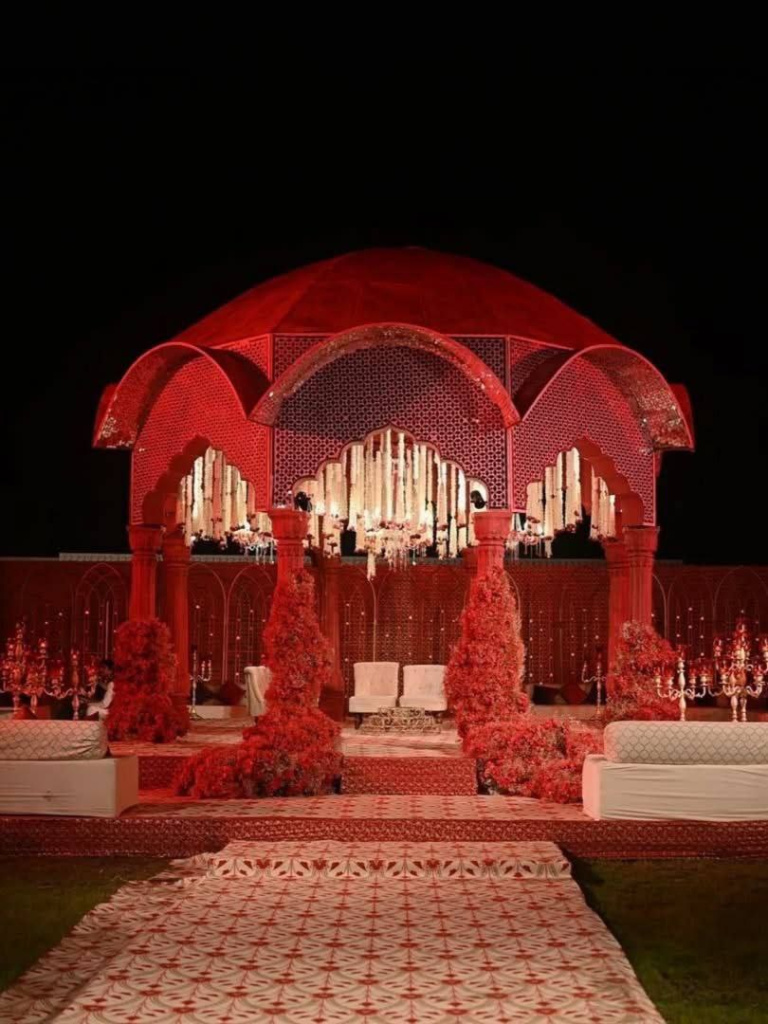
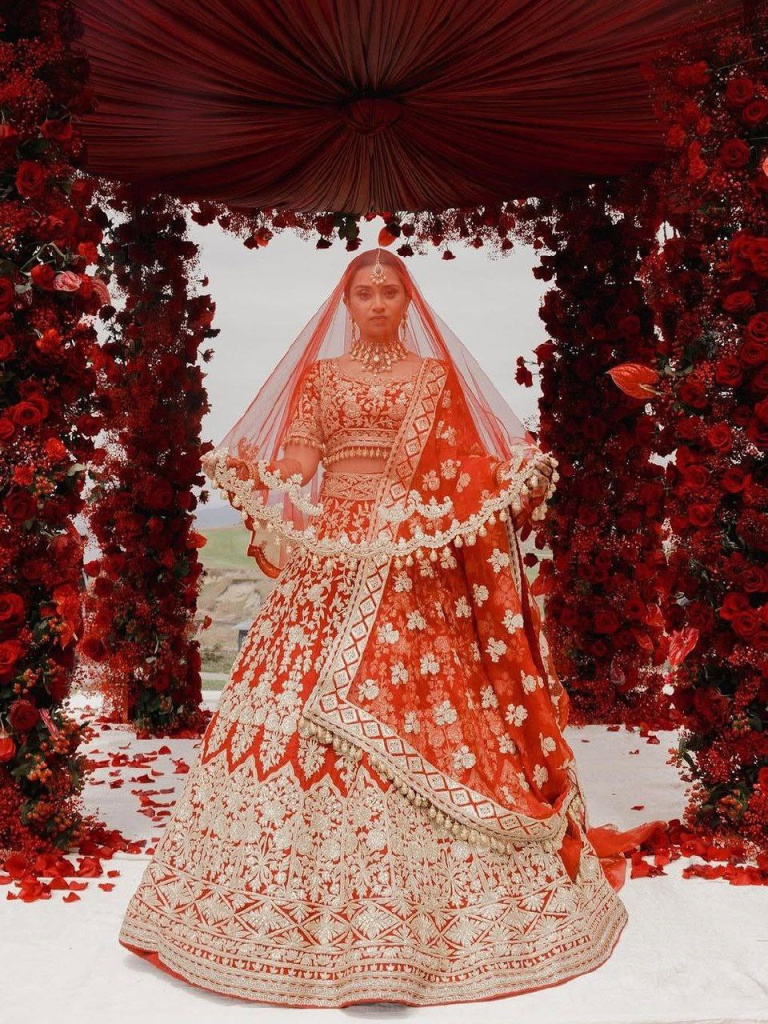
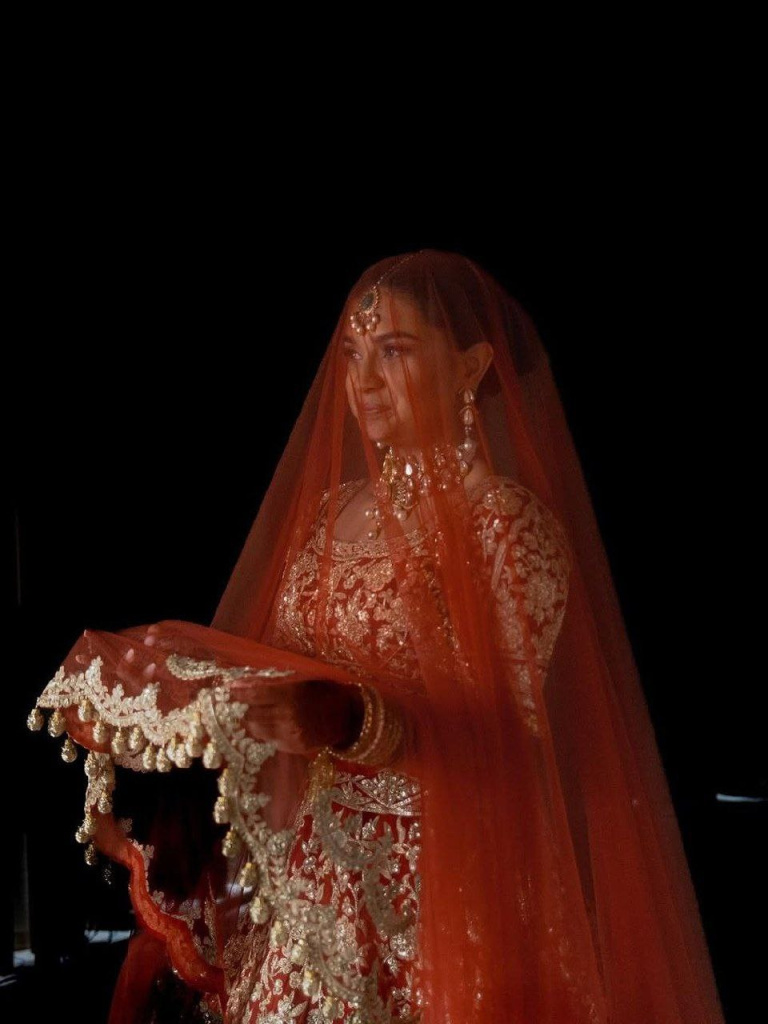
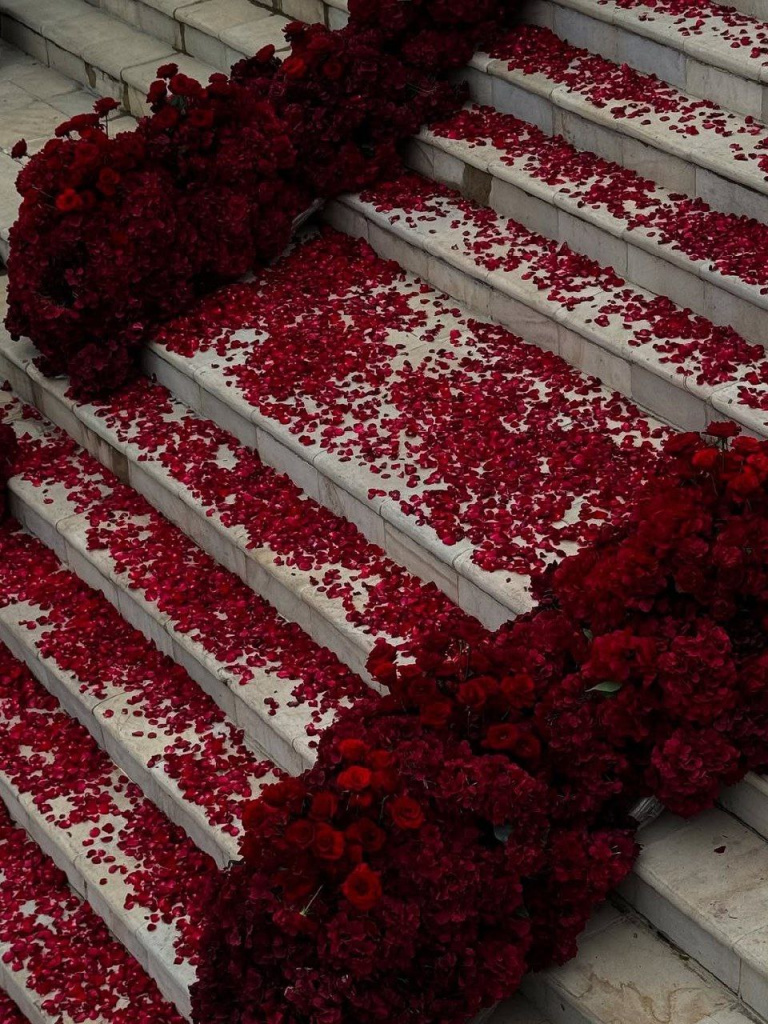
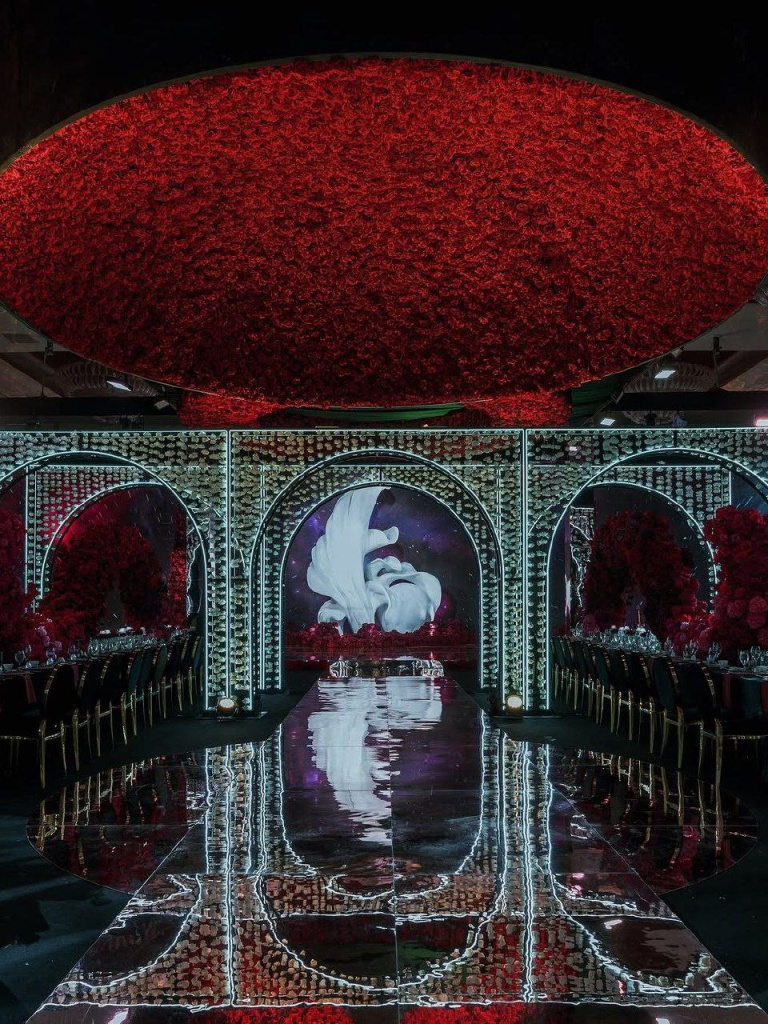
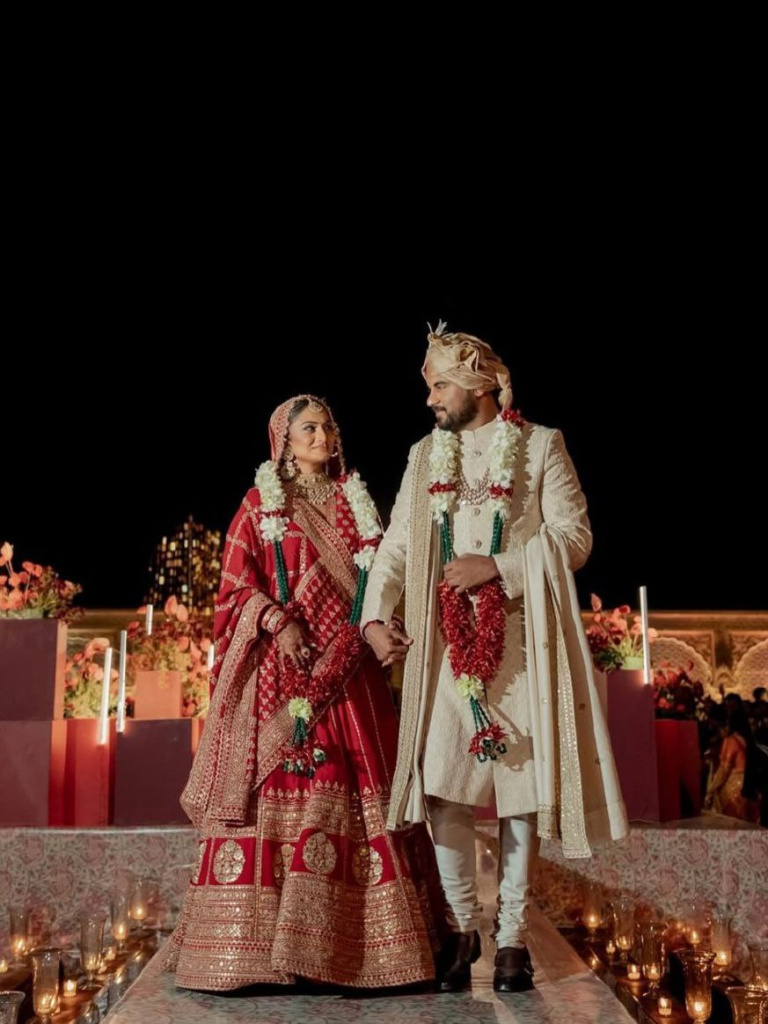
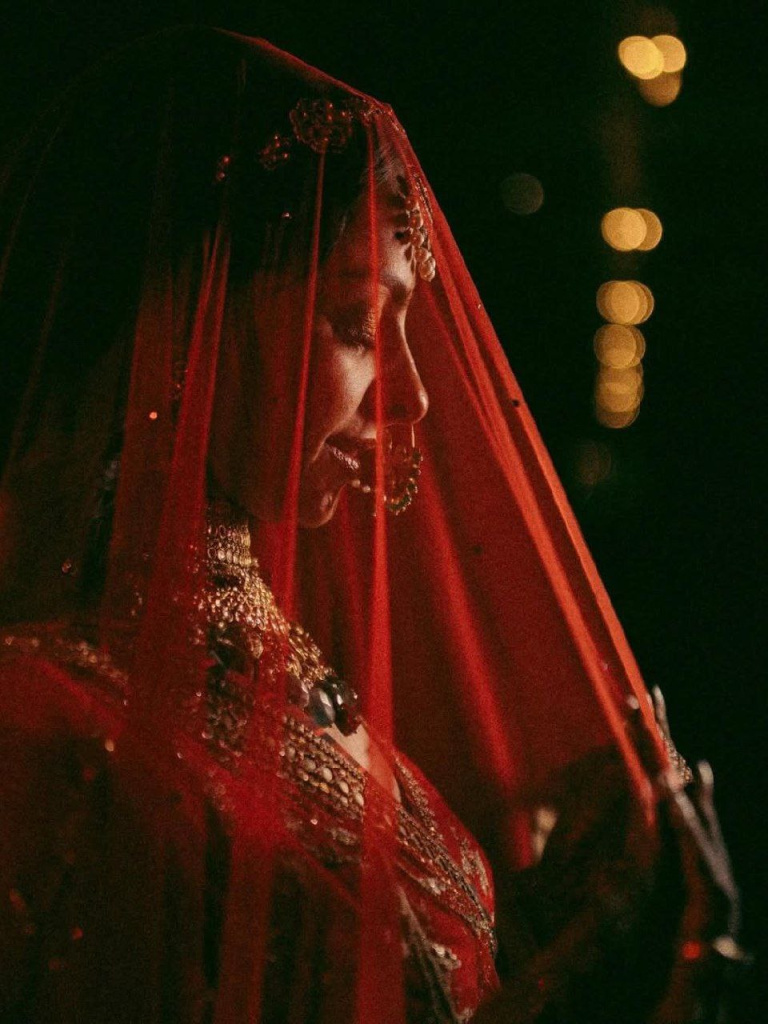
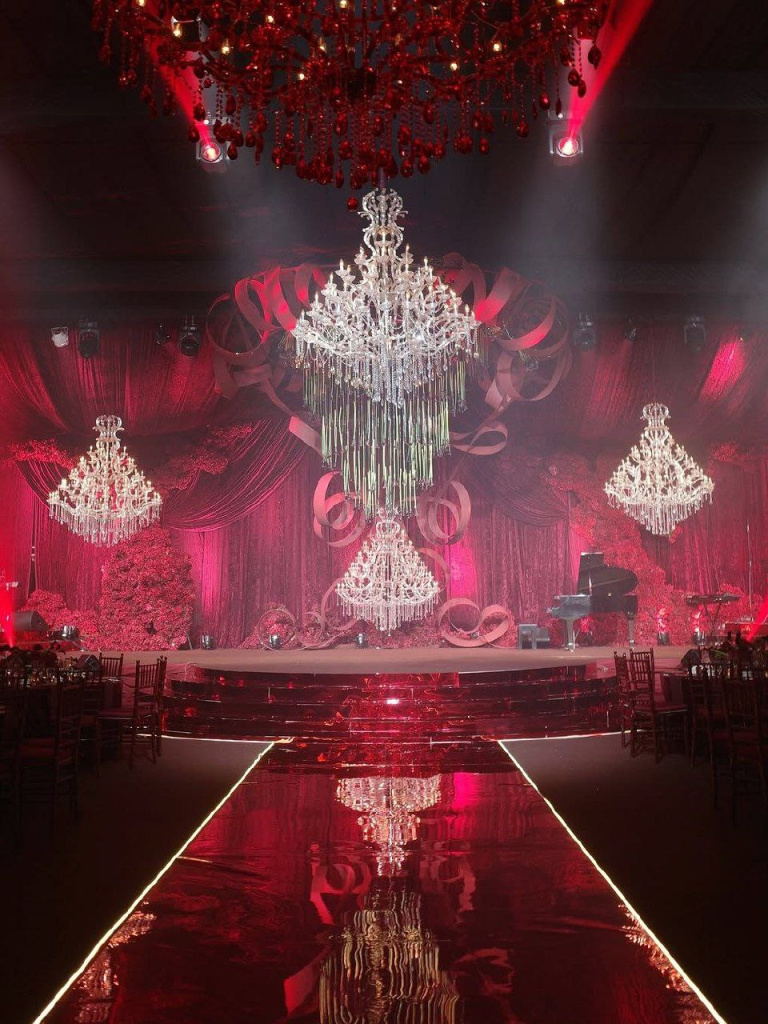
What does this look like?
- A Hindu-Catholic wedding where the couple exchanged vows under a beautifully adorned mandap, followed by a Christian blessing and a grand wedding march.
- A Chinese-Jewish wedding that incorporates a traditional tea ceremony before stepping under a stunningly designed chuppah.
- A Muslim-Western celebration where a Nikah (Islamic marriage contract) is followed by an outdoor vow exchange, blending formal and religious commitments into a beautiful moment.
2025 is all about redefining traditions, not erasing them—celebrating love in a way that respects heritage while embracing individuality.
Cultural Fashion Fusion
Multicultural weddings in 2025 are turning wedding fashion into a meaningful expression of identity. Brides and grooms are stepping away from single-tradition attire and merging fabrics, styles, and embellishments from both cultures into their outfits.
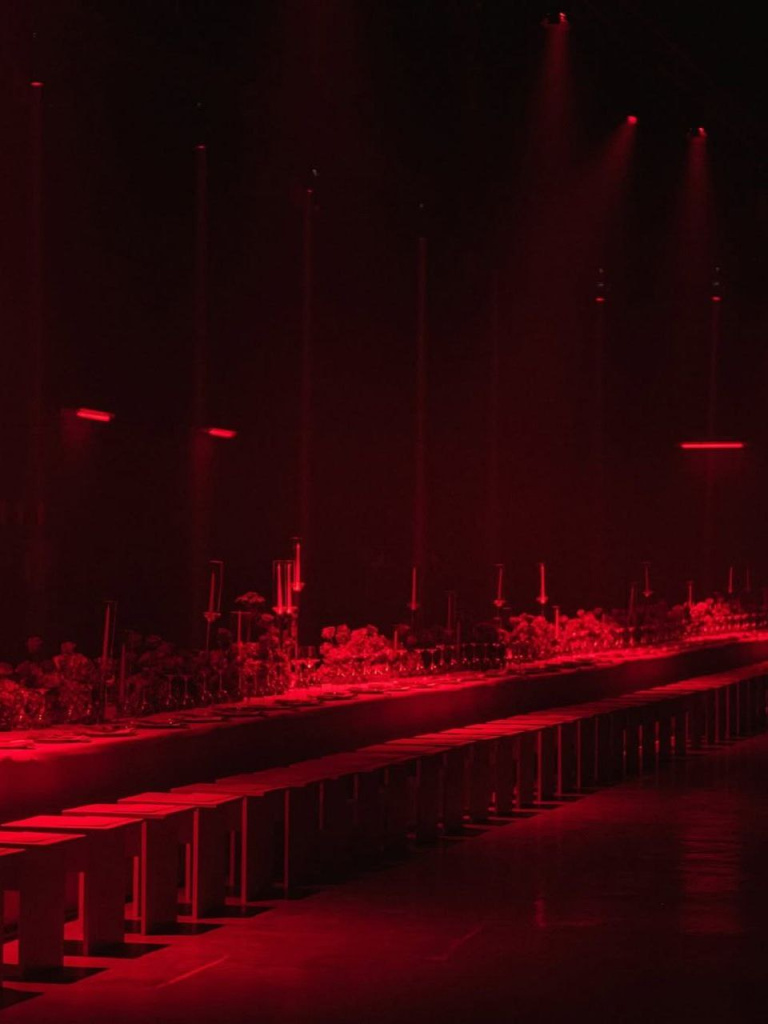
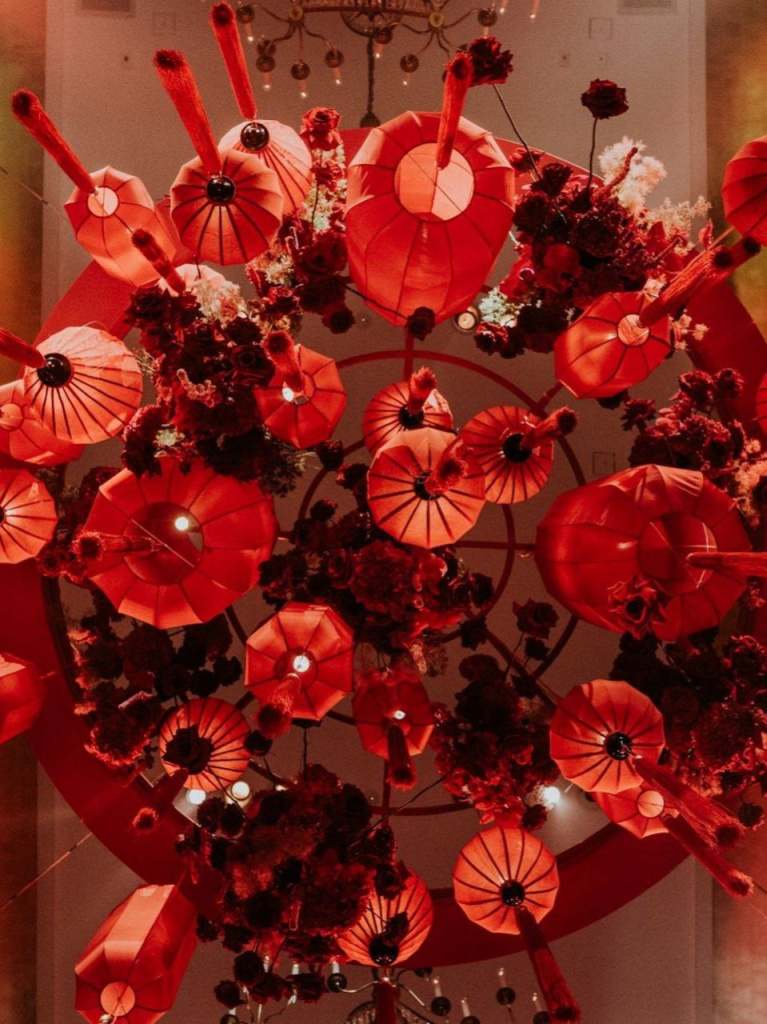
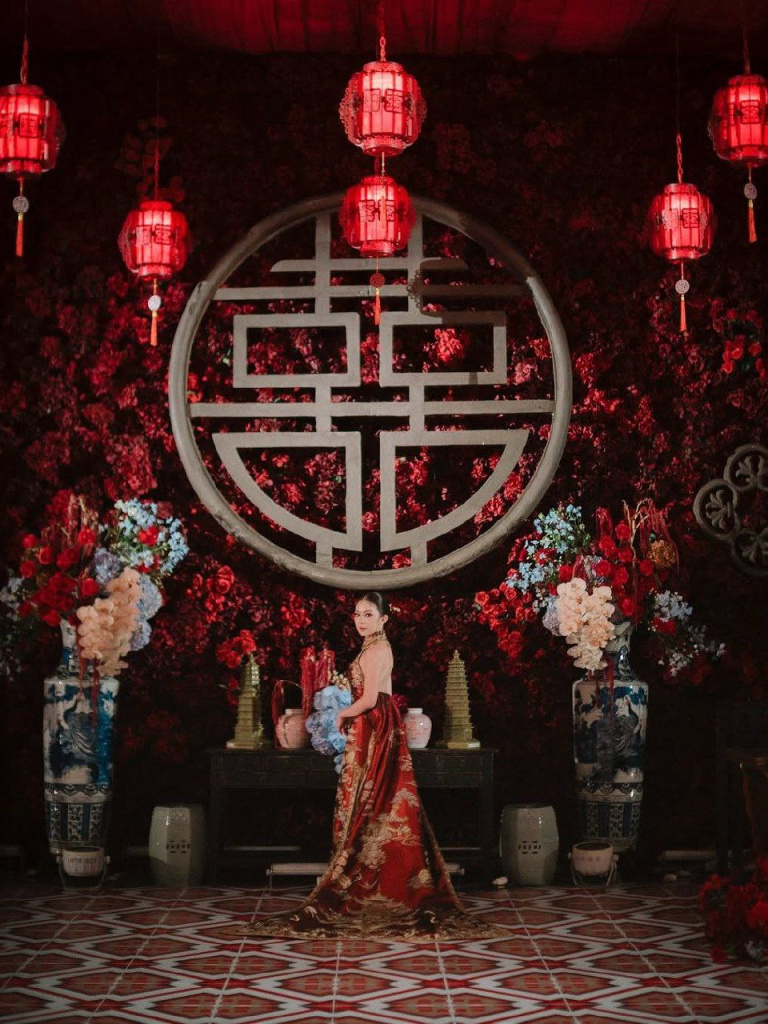
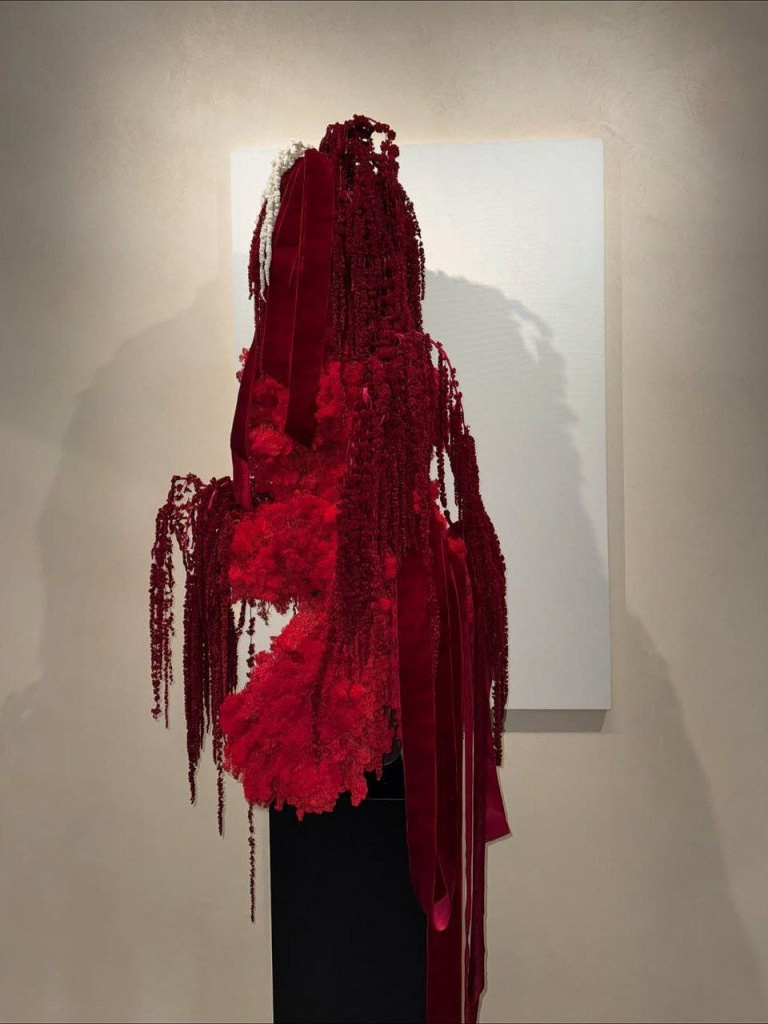
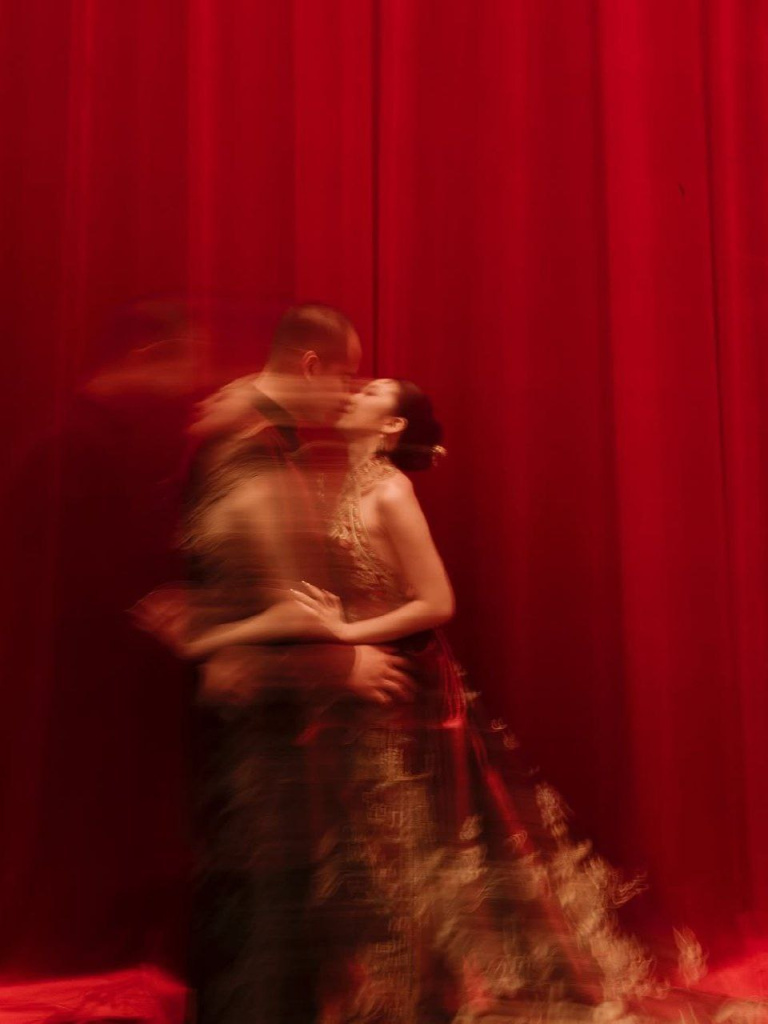
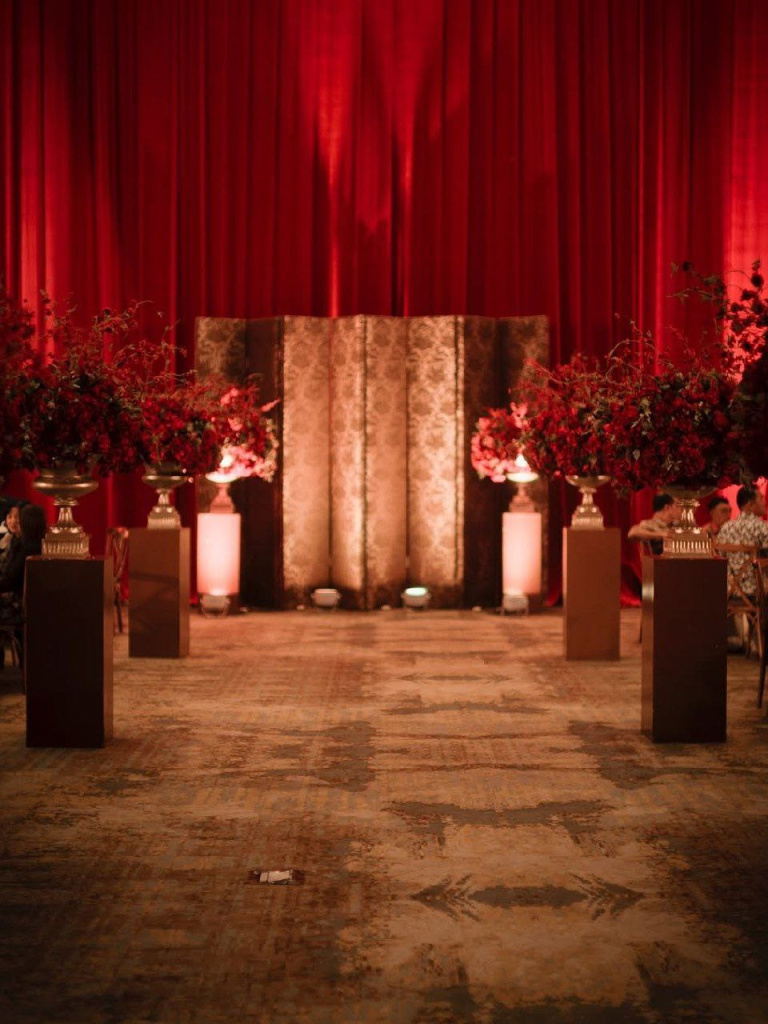
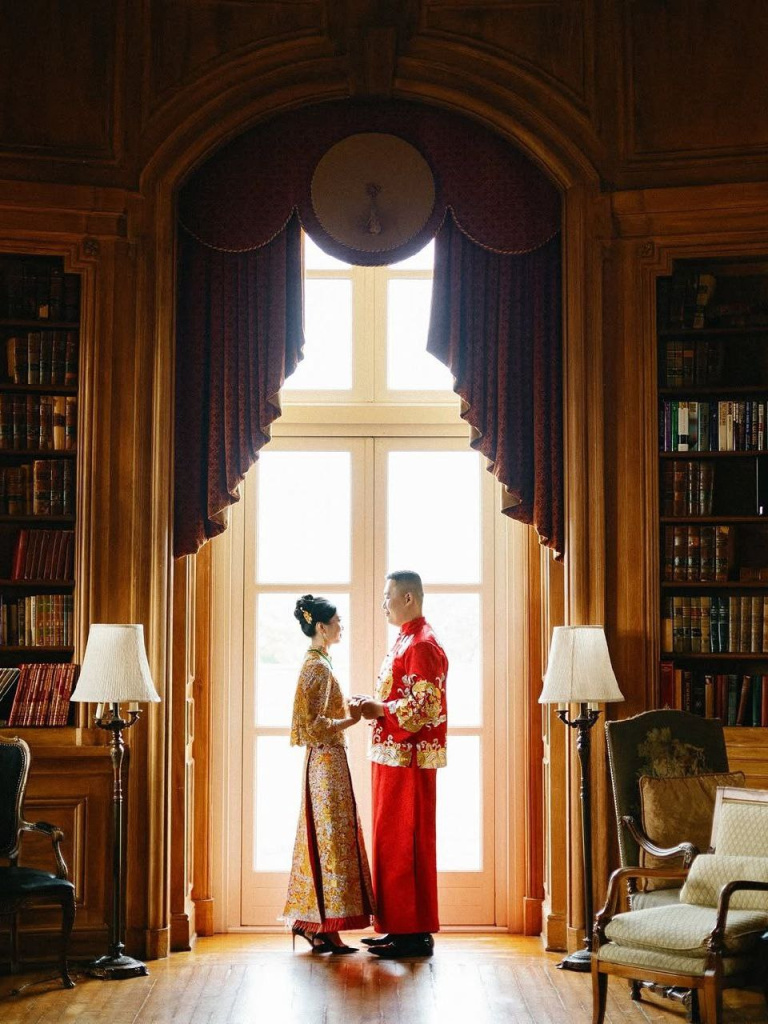
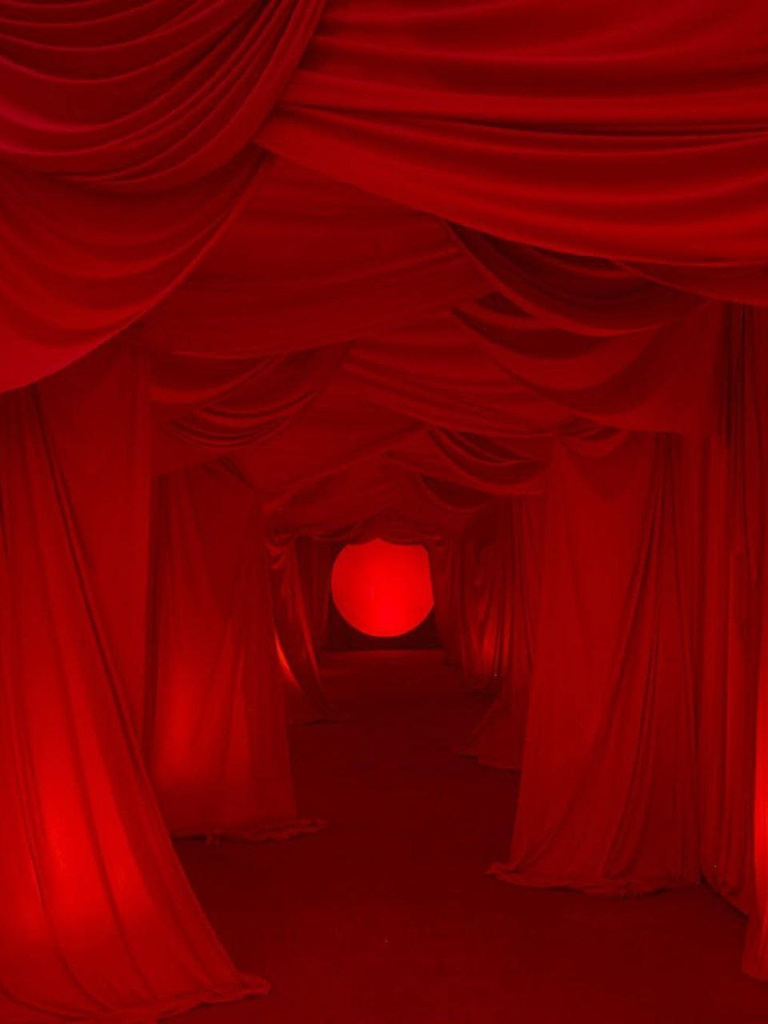
Fashion-forward trends we’re seeing:
- Dual-Outfit Looks: Brides are opting for two-in-one dresses, starting in a traditional lehenga, cheongsam, or hanbok and then revealing a Western-style gown during the reception.
- Groom’s Hybrid Attire: Think tuxedos with embroidered Indian or African patterns, or barongs (Filipino attire) paired with sleek dress pants.
- Blended Accessories: Brides are incorporating cultural embroidery, heritage jewelry, and traditional veils with modern silhouettes to create a wedding look that represents both sides.
2025’s brides and grooms are proving that you don’t have to choose one tradition over another—you can wear them both beautifully.
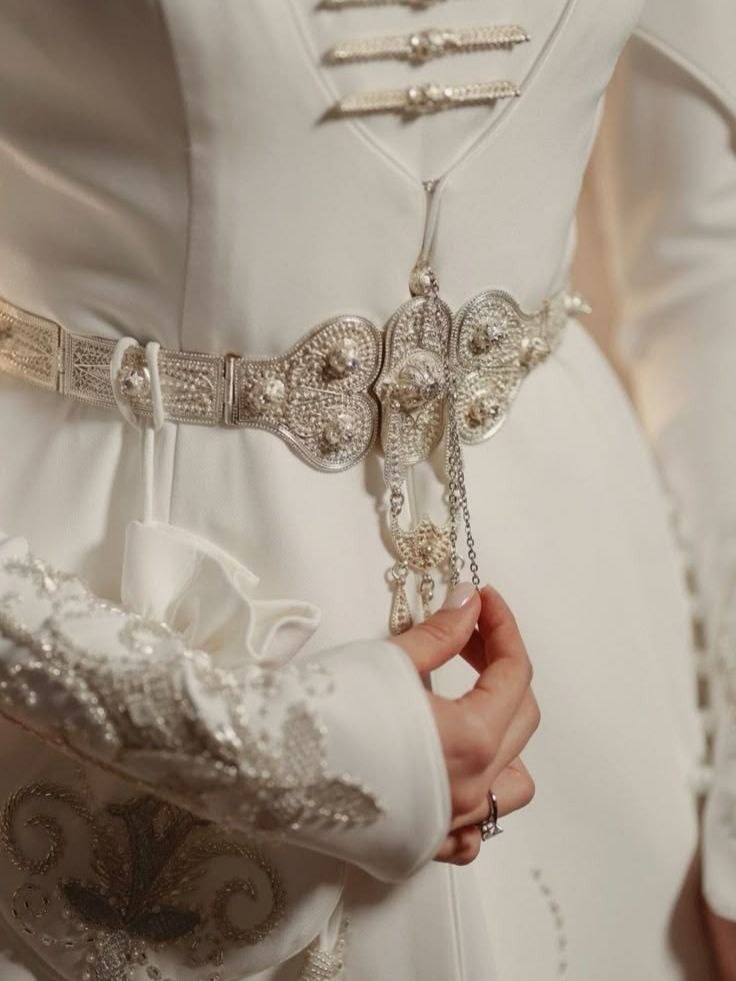
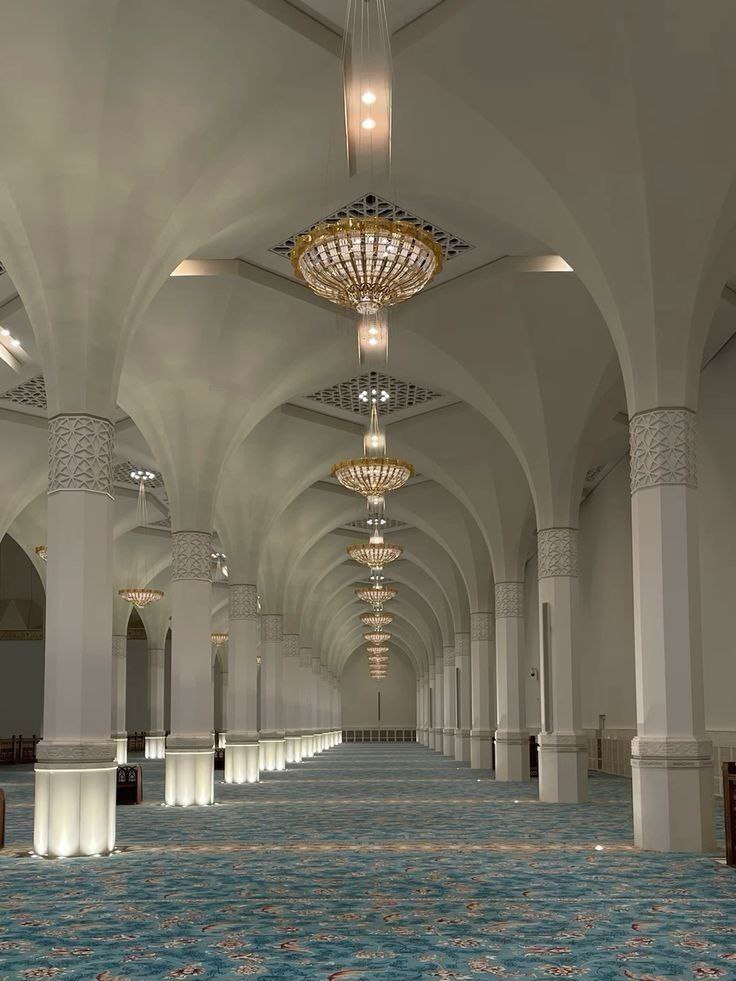
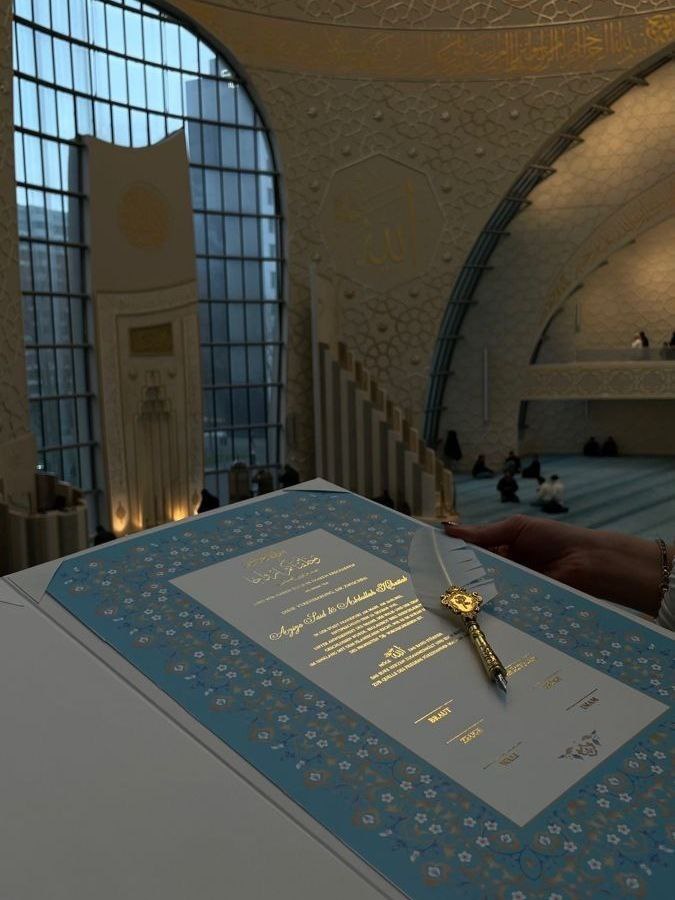
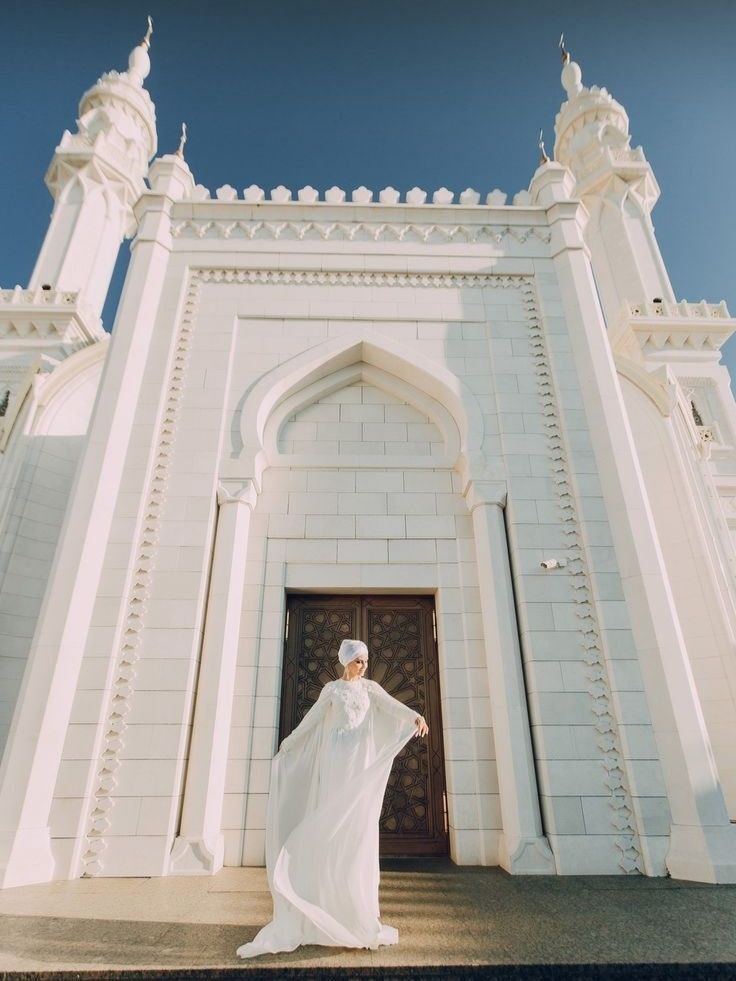
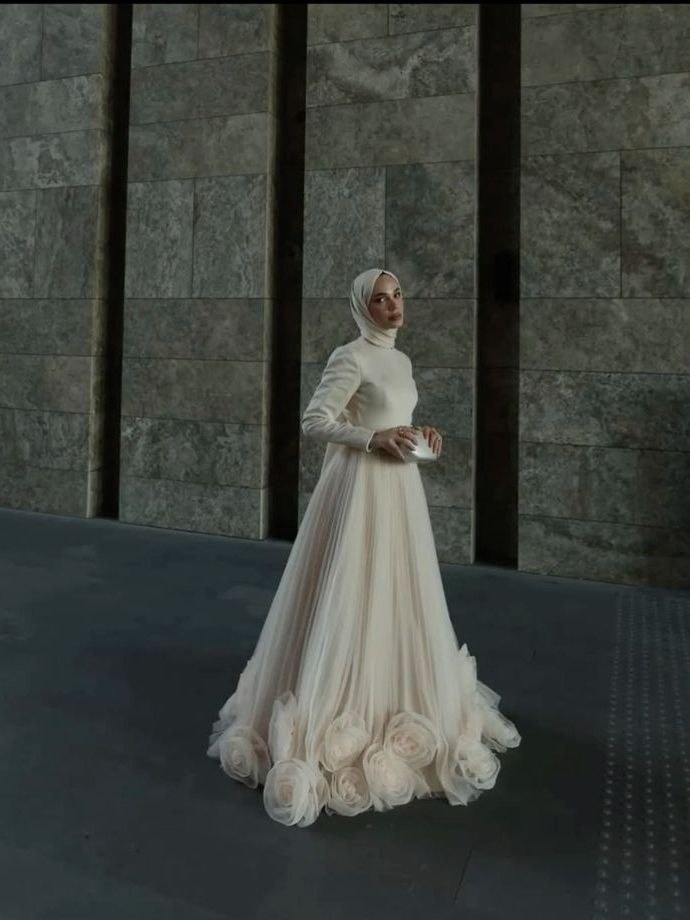
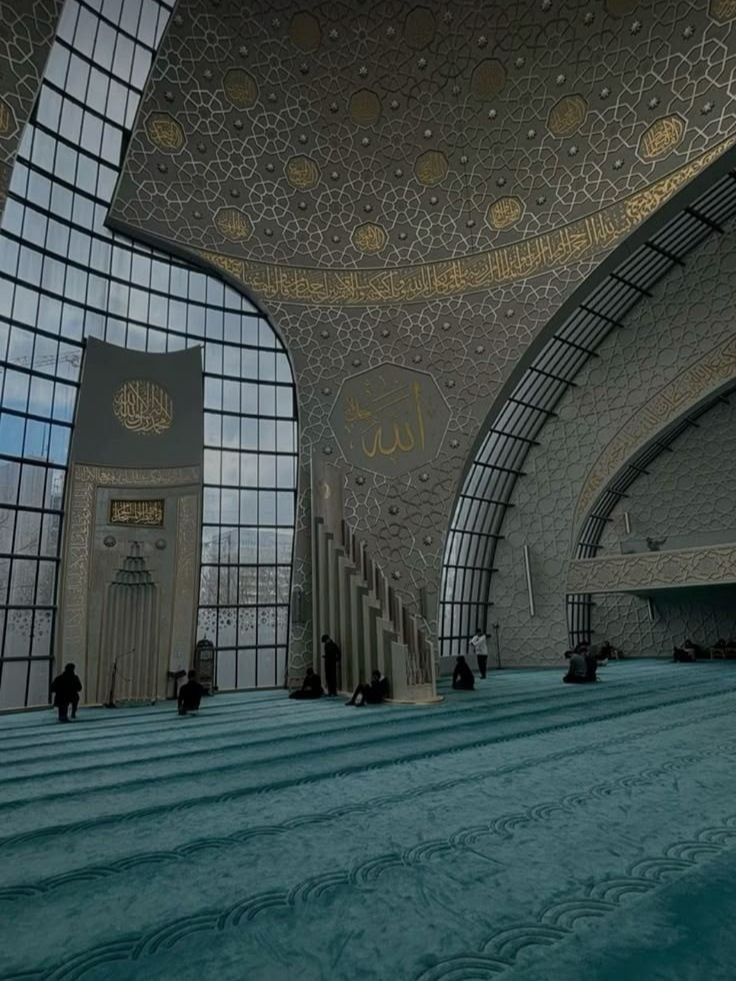
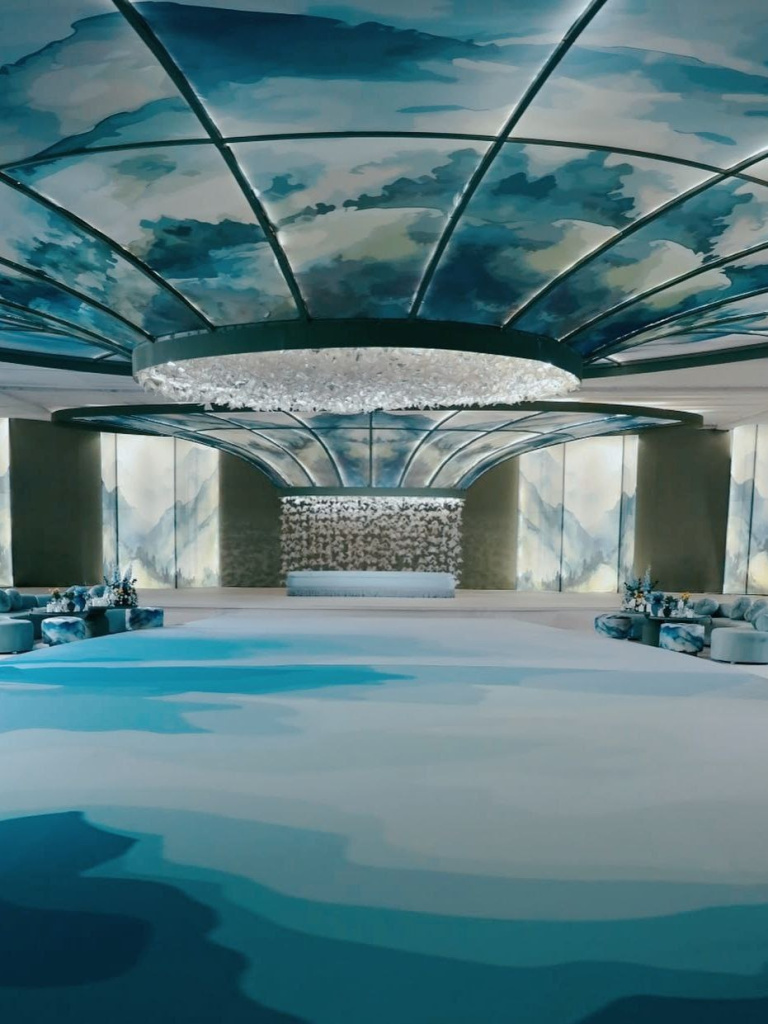
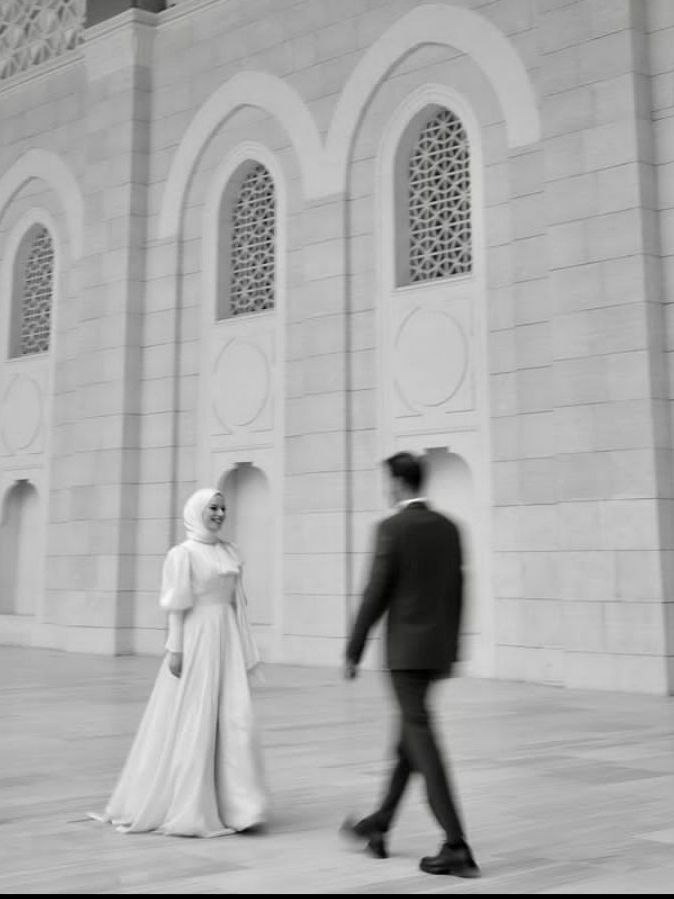
Entertainment & Guest Experience
Modern couples want their weddings to feel like a journey through their cultures, and that means creating interactive experiences that make guests feel part of the celebration.
Sustainable Multicultural Weddings
Sustainability is no longer a niche trend—it’s becoming a core part of wedding planning, even in multicultural weddings where traditions often involve elaborate décor and attire.
How couples are making their weddings greener:
- Eco-Friendly Wedding Attire: Brides are re-wearing or repurposing their mothers’ and grandmothers’ wedding saris, kimonos, or hanboks with a modern twist.
- Ethical Sourcing for Décor: Couples are choosing handcrafted, locally made wedding elements that celebrate culture while supporting artisans.
- Sustainable Feasting: Wedding menus are incorporating seasonal, locally sourced ingredients that reflect cultural flavors but minimize environmental impact.
- Digital Invitations & Programs: Instead of traditional paper invites, couples are using beautifully designed digital wedding invitations that still reflect heritage through creative designs.
In 2025, couples aren’t sacrificing their cultural traditions for sustainability—they’re reinventing them in ways that are eco-conscious and meaningful.
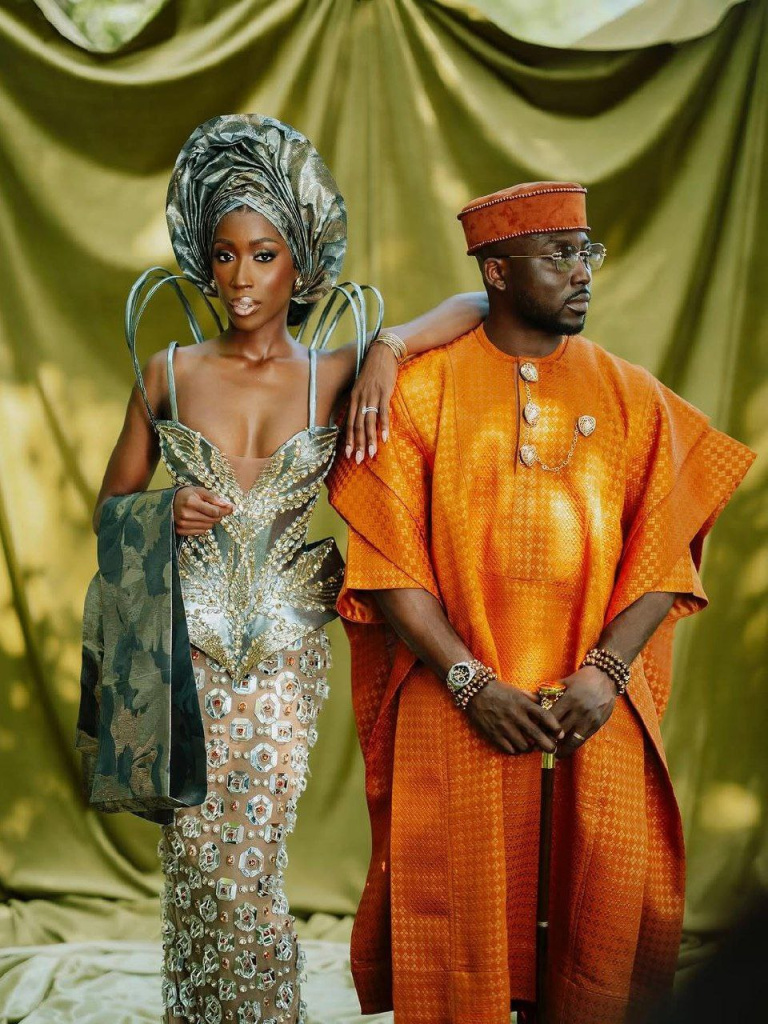
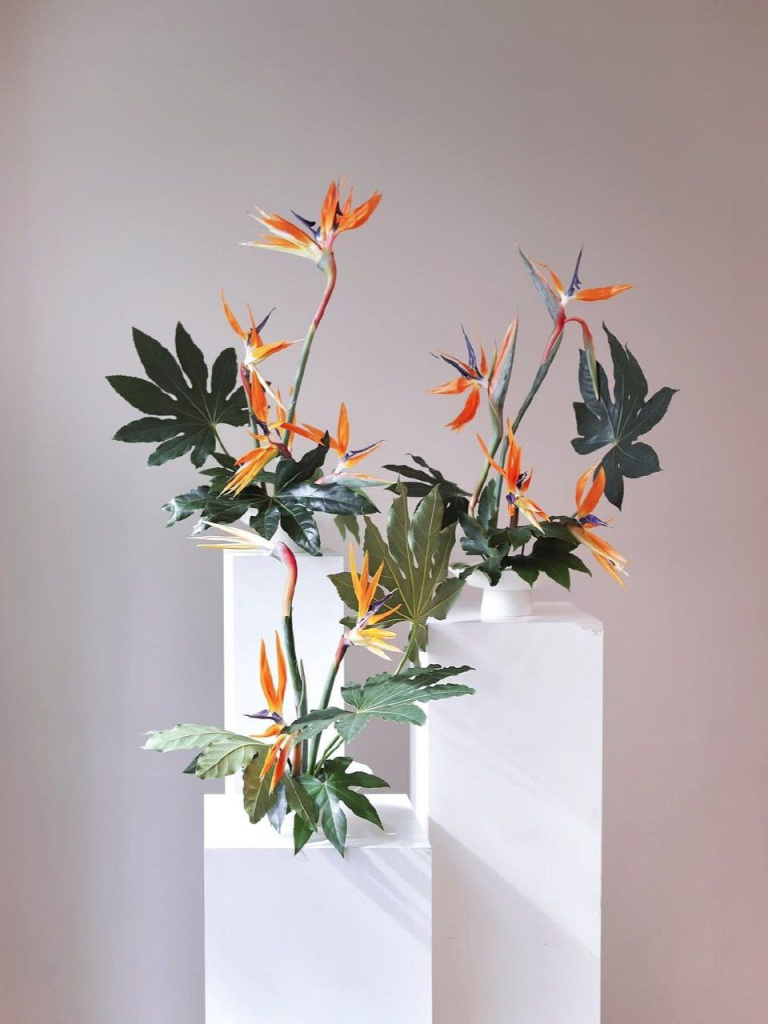
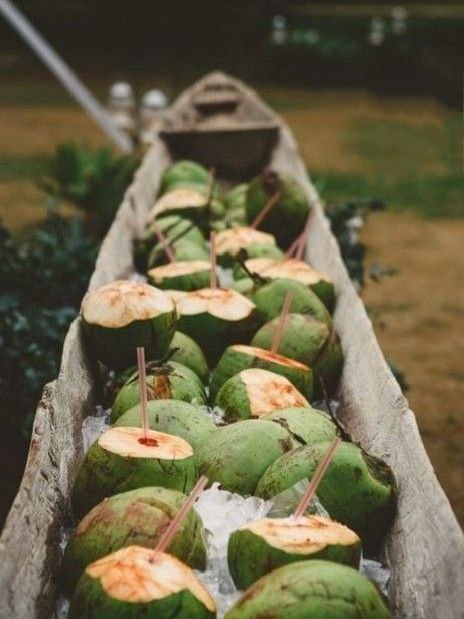
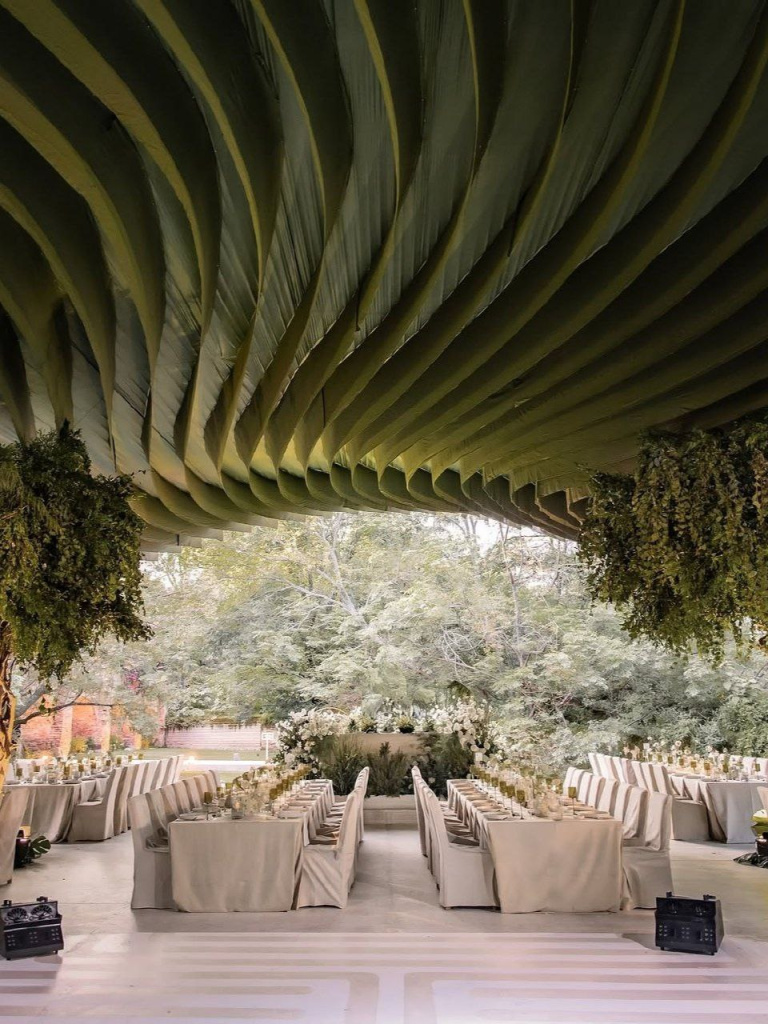
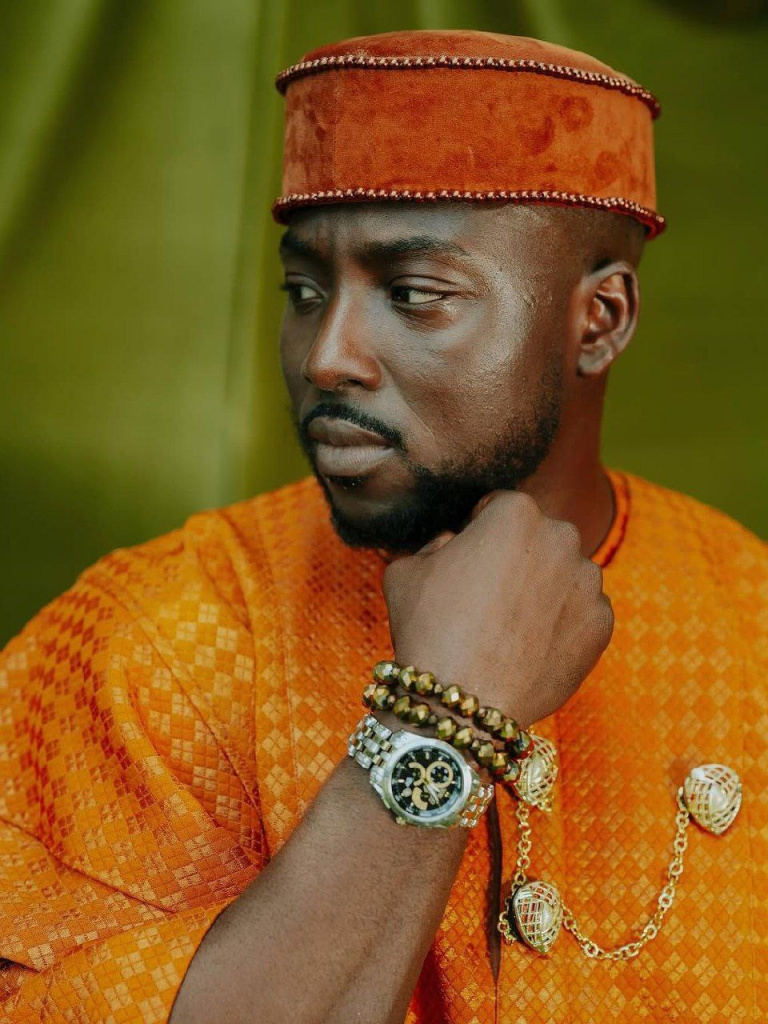
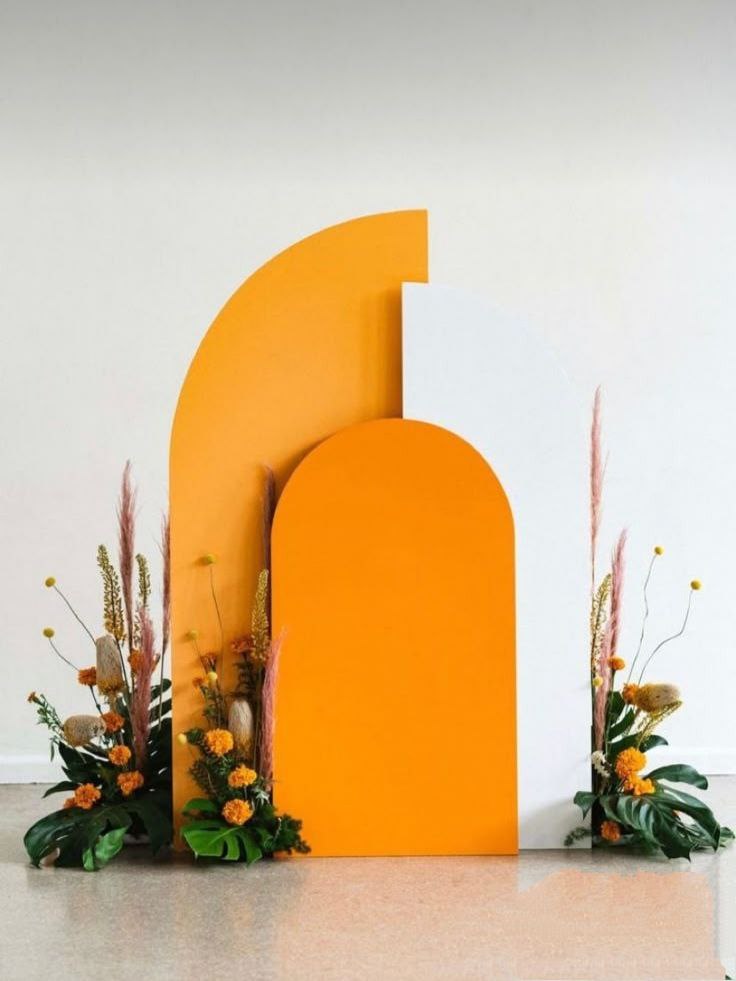
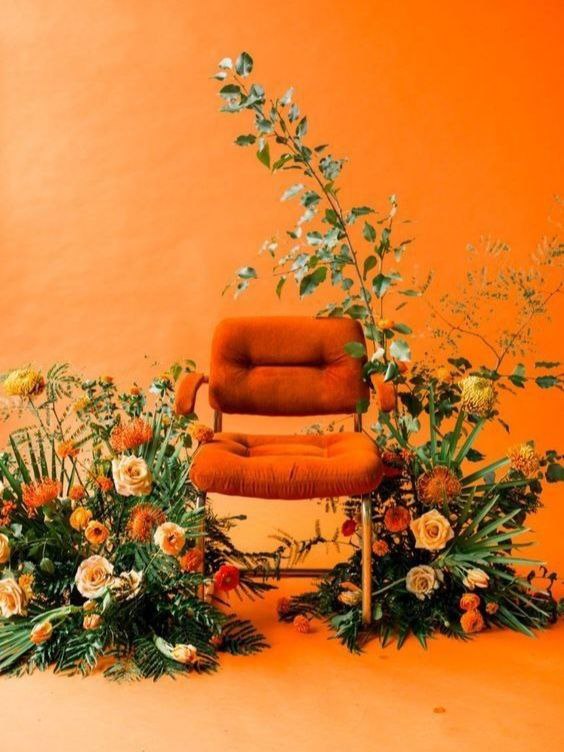
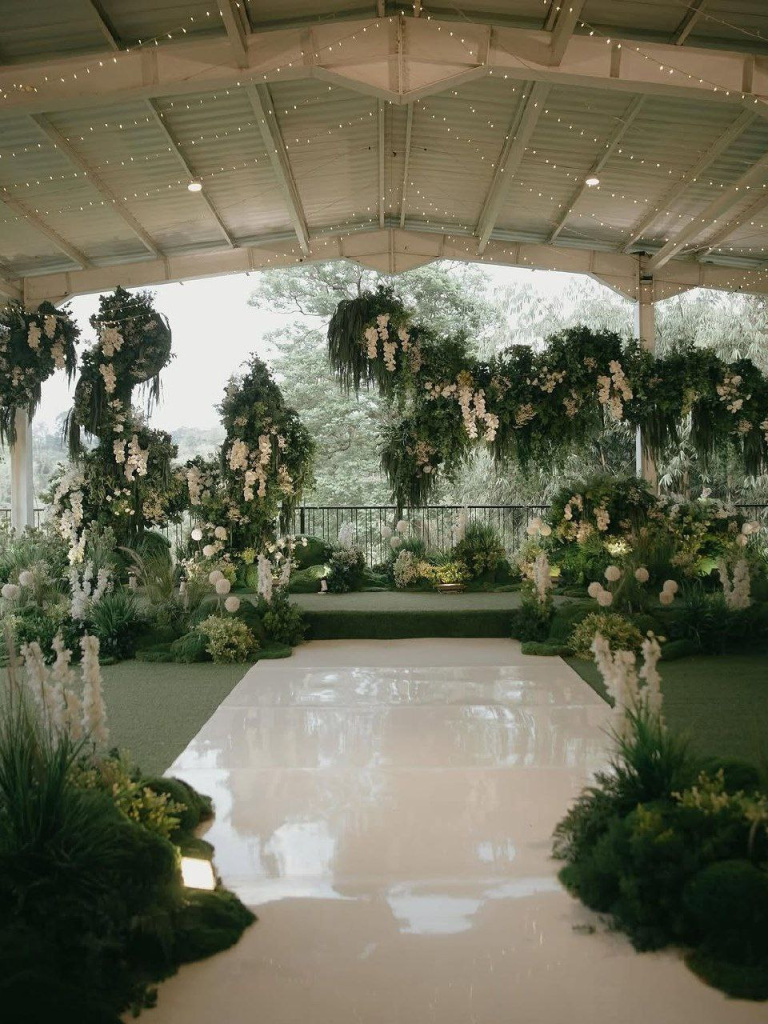

The Role of a Multicultural Wedding Planner: Why You Need One & How to Choose the Best
Planning a wedding is already a big task, but when it involves multiple cultures, traditions, and sometimes even different languages, the complexity increases tenfold. A professional with experience in blending traditions seamlessly can help create a balanced, meaningful, and stress-free wedding while respecting the customs and expectations of both families. Here’s why hiring a multicultural wedding planner is one of the best decisions you can make.
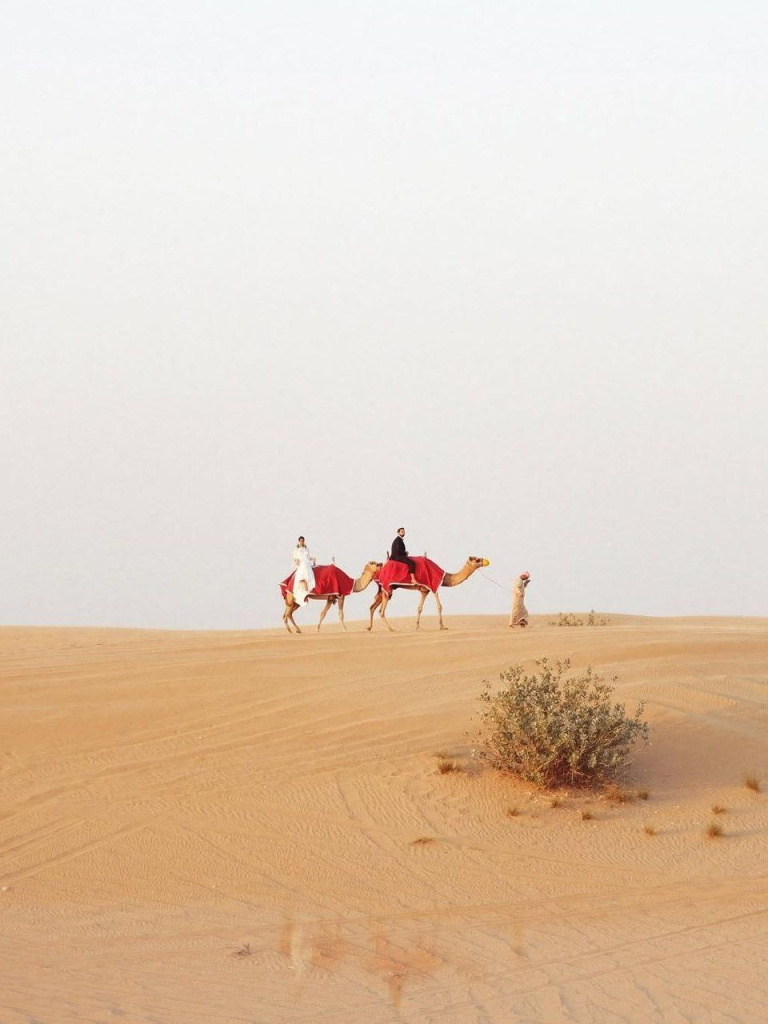
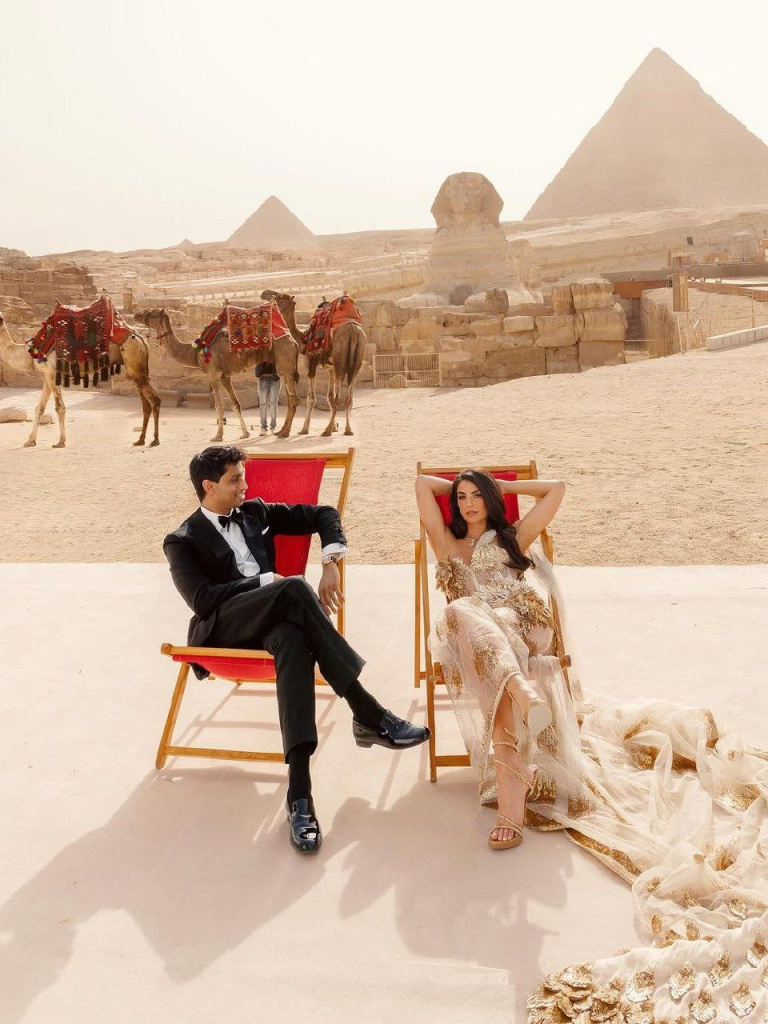
They Understand the Nuances of Different Cultures
Every culture has its unique wedding customs, and not all planners are familiar with them. A specialist in multicultural weddings will:
- Ensure key traditions are honored correctly (e.g., Jewish ketubah signing, Indian baraat, or Chinese tea ceremonies).
- Help mediate family expectations, especially if the couple wants a modern twist while parents want a more traditional approach.
- Suggest creative ways to blend customs so both backgrounds feel equally represented.
Example: A couple with Greek and Indian roots wants to include both a Greek Orthodox crowning ceremony and an Indian haldi pre-wedding ritual. A multicultural planner knows how to structure the timeline so both traditions feel seamlessly incorporated, rather than rushed or out of place.
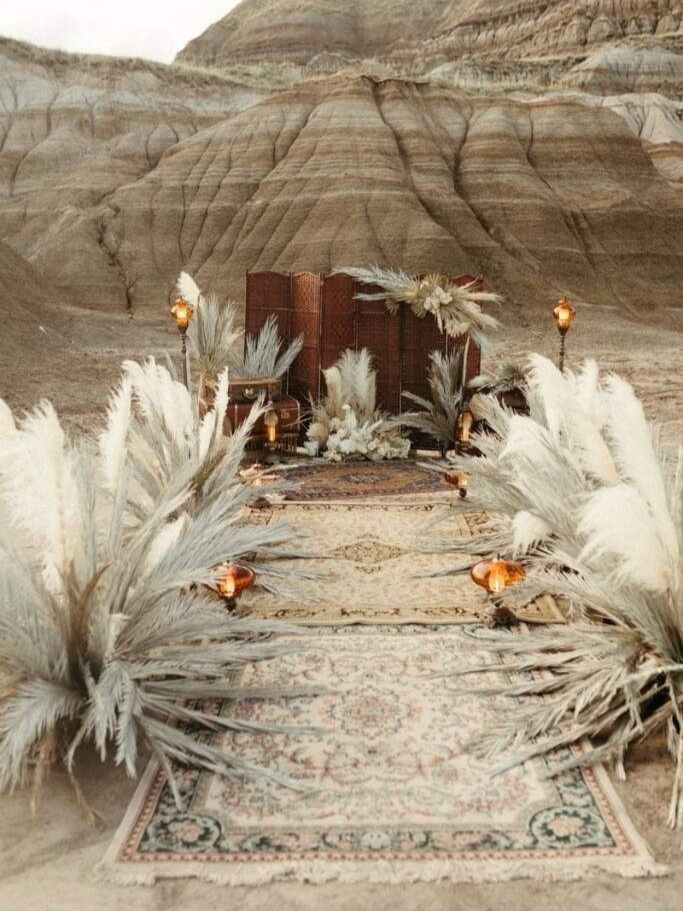
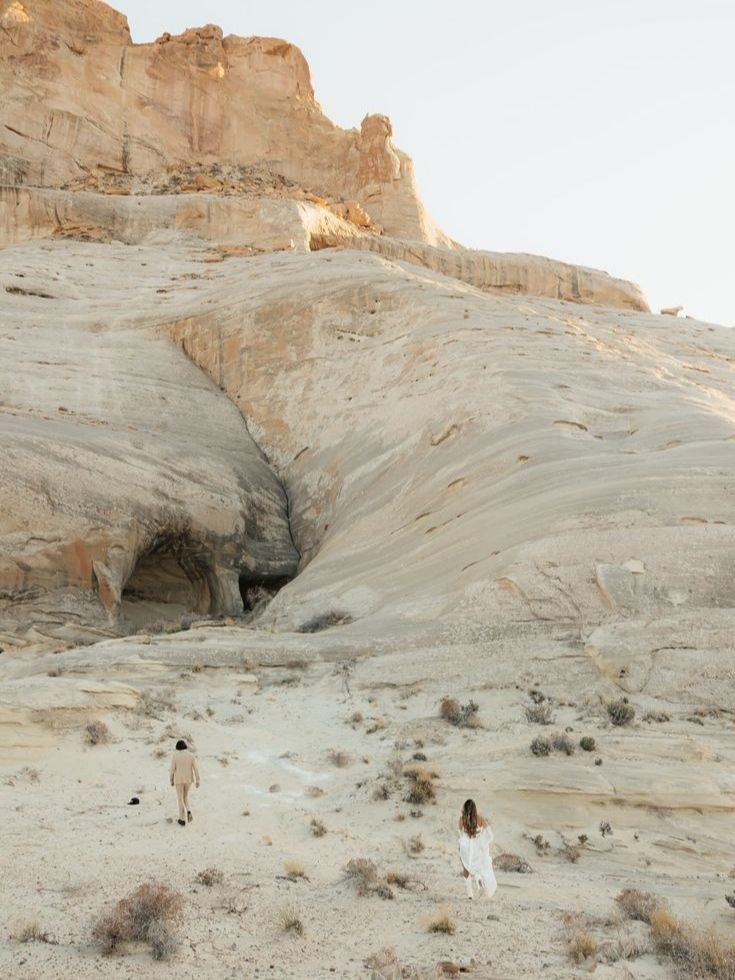
They Manage the Complexity of Religious & Legal Requirements
Some cultures have strict religious or legal wedding requirements. A multicultural wedding planner will:
- Ensure religious customs are followed (e.g., ensuring a Catholic wedding includes pre-marriage counseling or that a Jewish ceremony has a kosher chuppah).
- Coordinate legal paperwork, especially for destination weddings that require different documentation (e.g., Muslim weddings requiring specific contracts, or interfaith marriages needing civil approval in some countries).
- Advise on interfaith ceremonies, helping couples navigate what is permissible in each religion and how to blend different beliefs in a respectful way.
Example: A Muslim-Christian couple wants both a Nikah (Islamic marriage contract) and a church ceremony. The planner will ensure both officiants are present, that the order of events makes sense, and that the requirements of each religion are met before the legal ceremony.
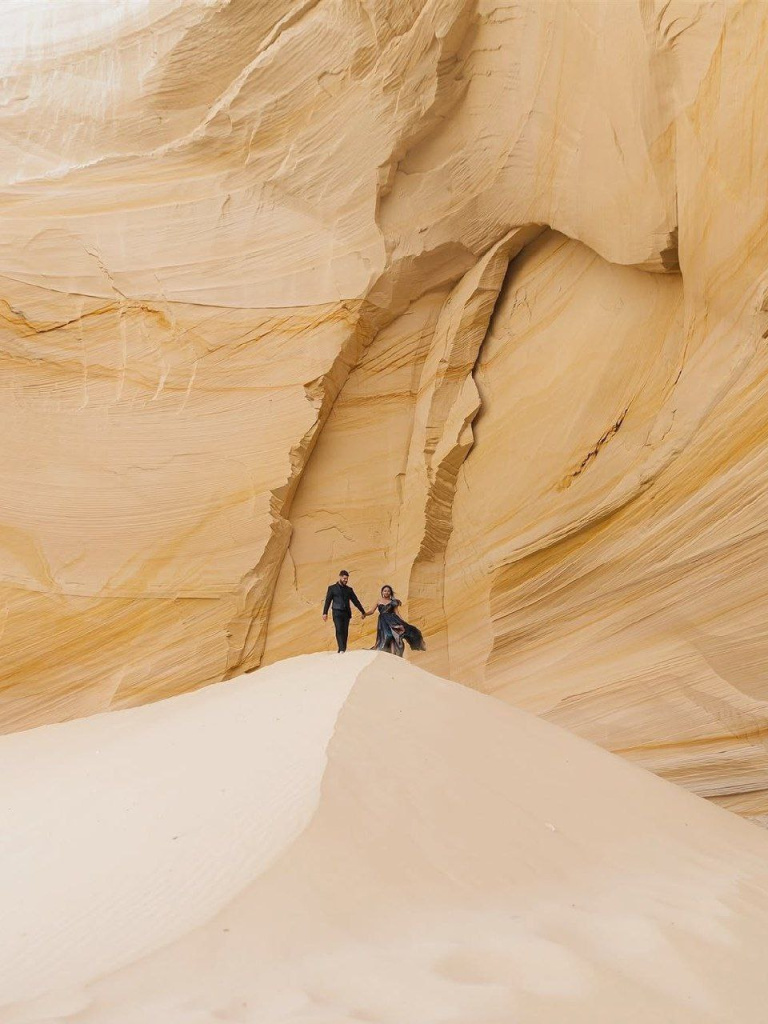
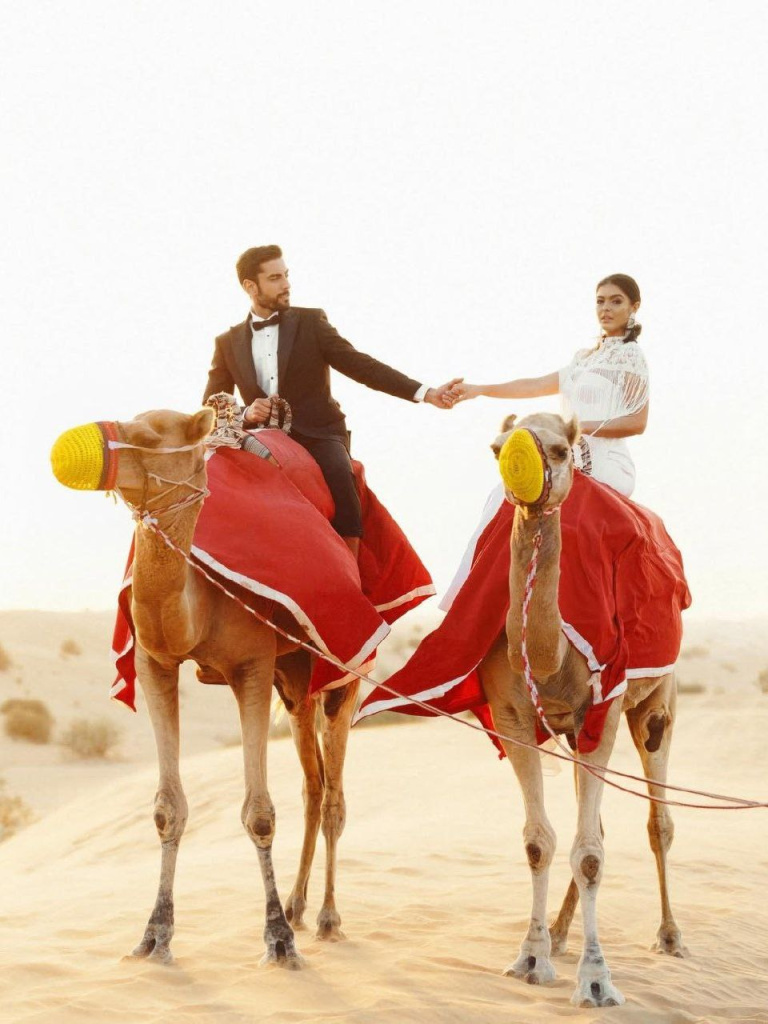
They Handle Family Dynamics & Expectations
Multicultural weddings often come with strong family opinions, as traditions and cultural expectations can be deeply personal. A planner acts as a neutral mediator to:
- Balance parental expectations vs. modern preferences.
- Communicate with both families if there are language barriers or differing views on customs.
- Create a compromise when traditions clash, ensuring both sides feel respected.
Example: A Mexican-Korean couple may have one side expecting a traditional mariachi band and a Catholic mass, while the other side wants a Korean Paebaek ceremony with formal bows and tea offerings. A planner will find a way to structure both elements harmoniously while also explaining traditions to guests from each culture.Є
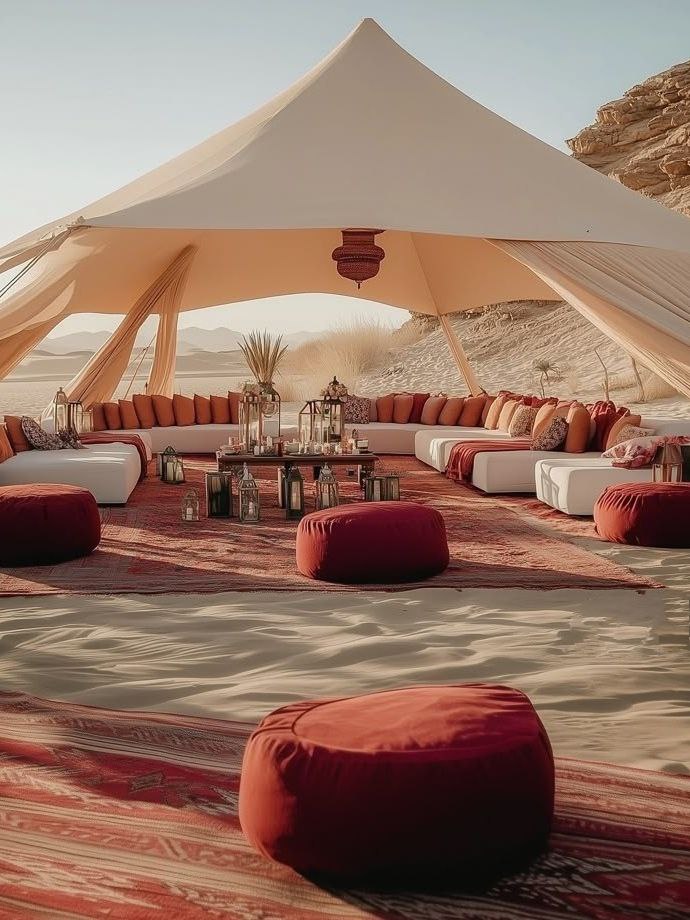
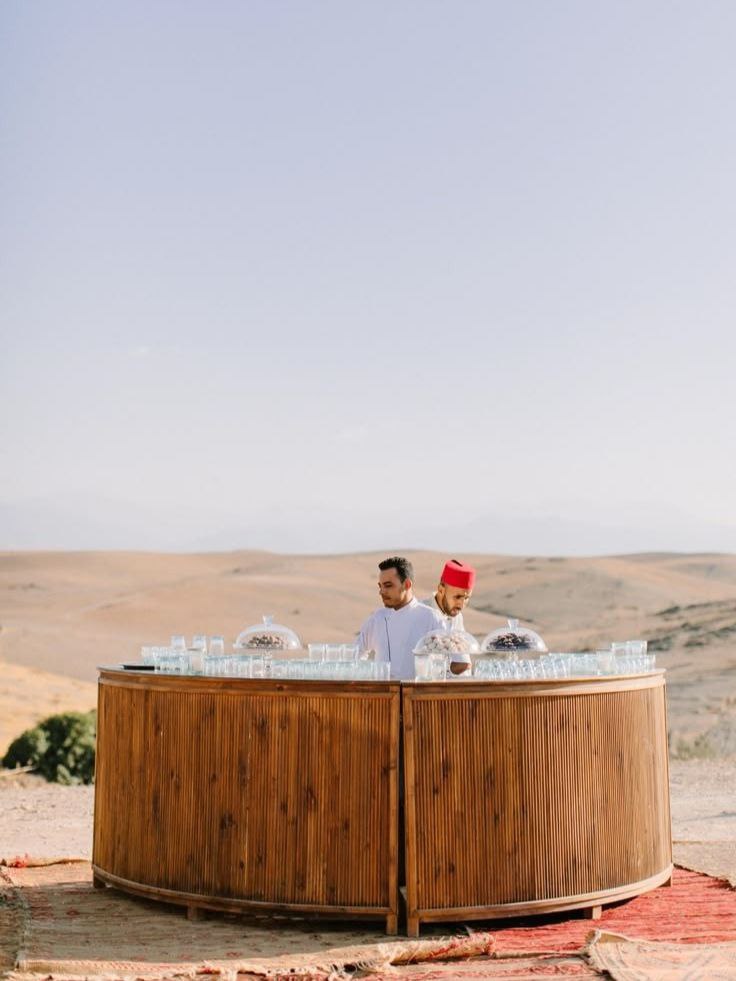

Choosing the Perfect Multicultural Wedding Photographer
Hiring a multicultural wedding photographer is not just about talent—it’s about cultural awareness, flexibility, and experience in handling diverse traditions. Here’s what you need to know to choose the right photographer who can authentically document your multicultural love story.
Why Experience in Multicultural Weddings Matters
Not all photographers understand the cultural depth and nuances involved in multicultural weddings. A photographer with the right experience will know:
- Which key moments to capture from each tradition—whether it’s a Hindu Sindoor ceremony, a Chinese lion dance, or a Greek plate-smashing celebration.
- How to adapt to different lighting and settings—some rituals require candlelight ambiance, others take place outdoors at sunrise, and some involve vibrant, colorful backdrops.
- How to respectfully document religious and sacred moments—some cultures have strict rules about photography during certain rituals (e.g., Sikh Anand Karaj ceremonies or Muslim Nikah ceremonies).
- How to direct and pose diverse groups of guests—working with large families who may not speak the same language or have different posing preferences.
Example: A photographer who has shot a Nigerian-Italian wedding before will know that the Yoruba money spray tradition (where guests throw money at the couple) should be captured in motion with dynamic angles, while the classic Italian family portraits require a more formal and timeless composition.
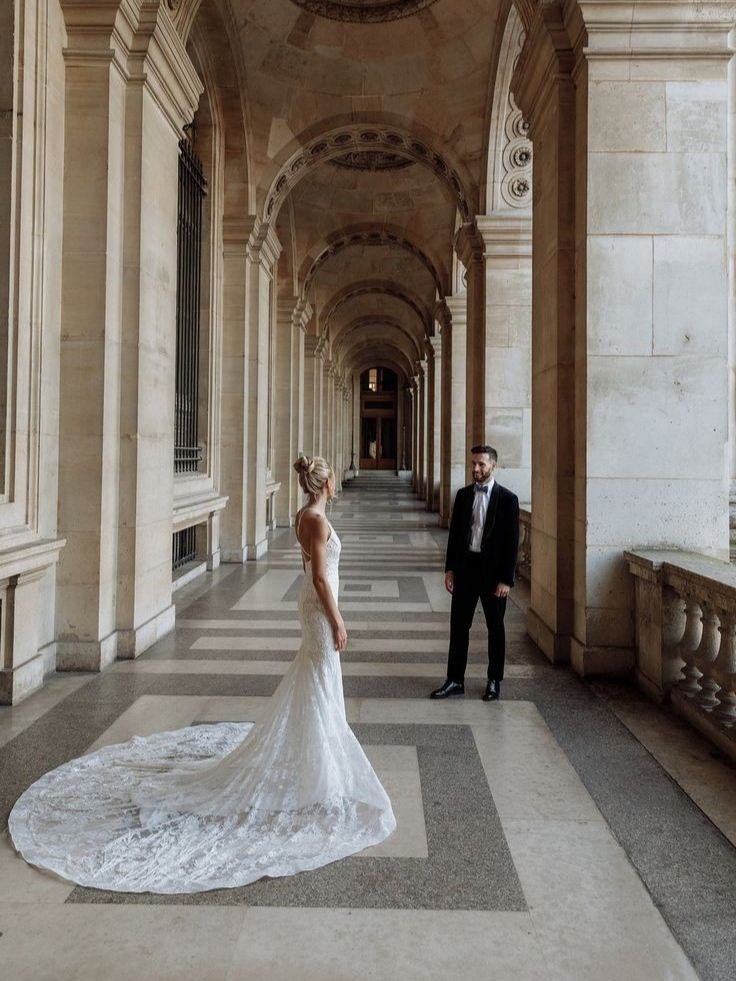
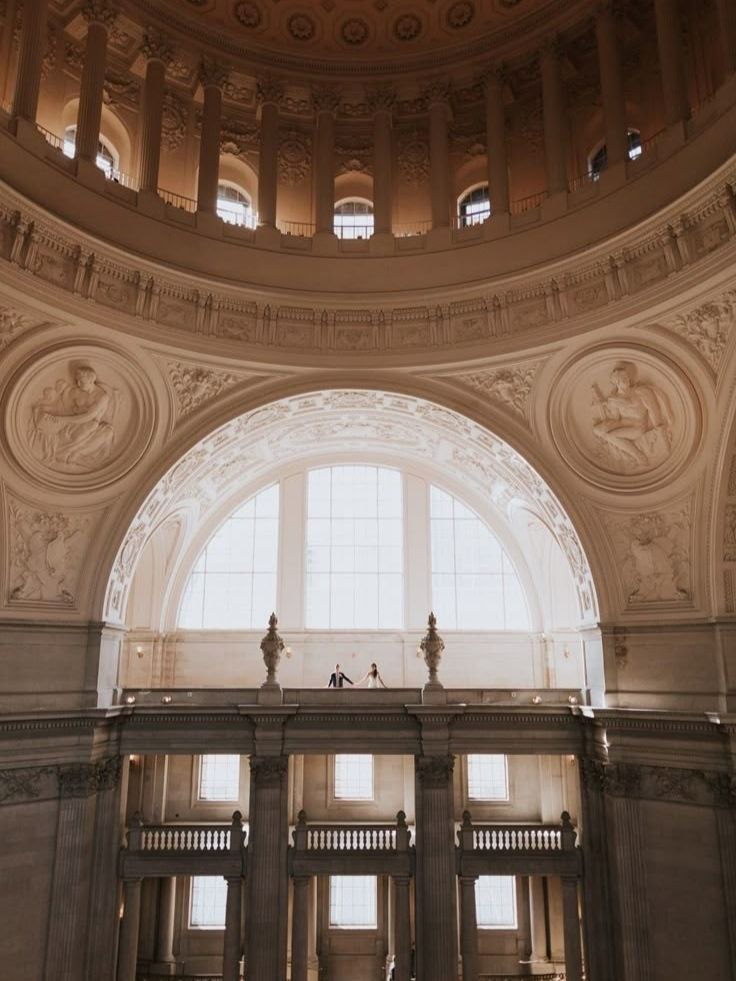
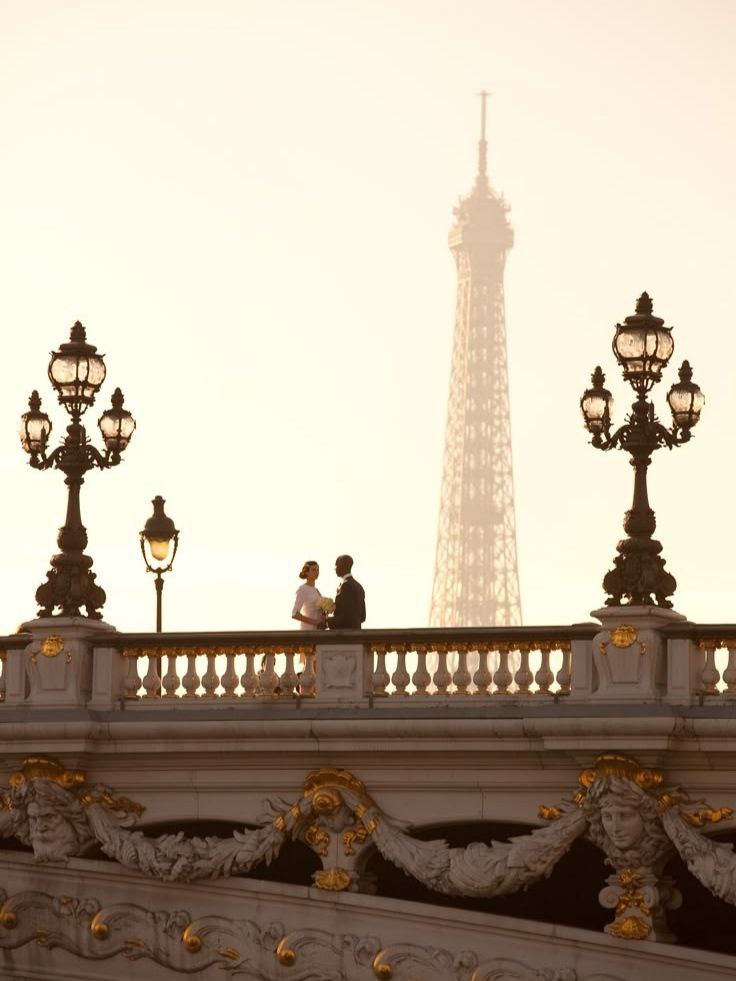
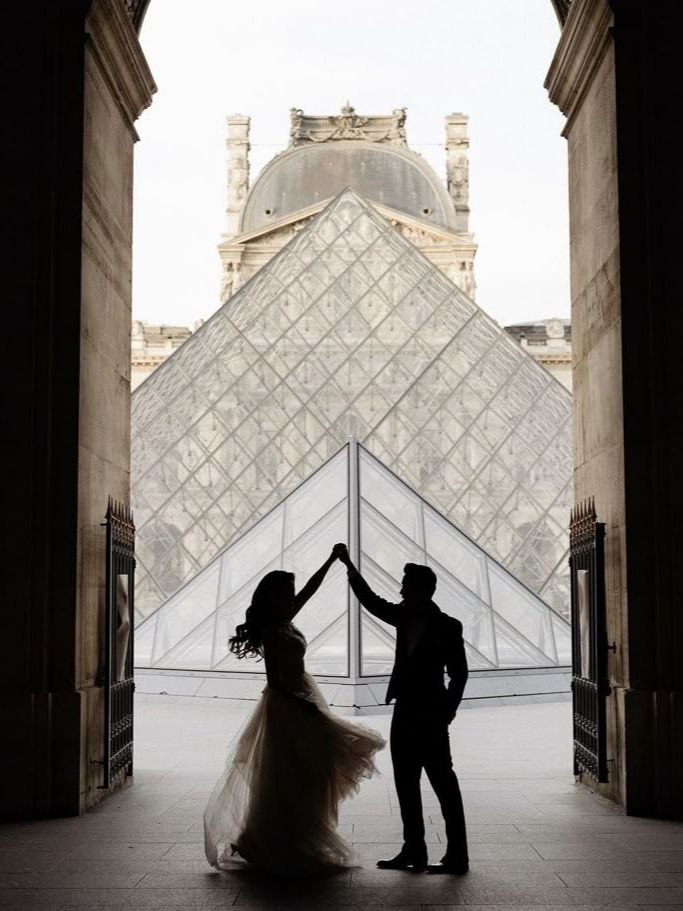
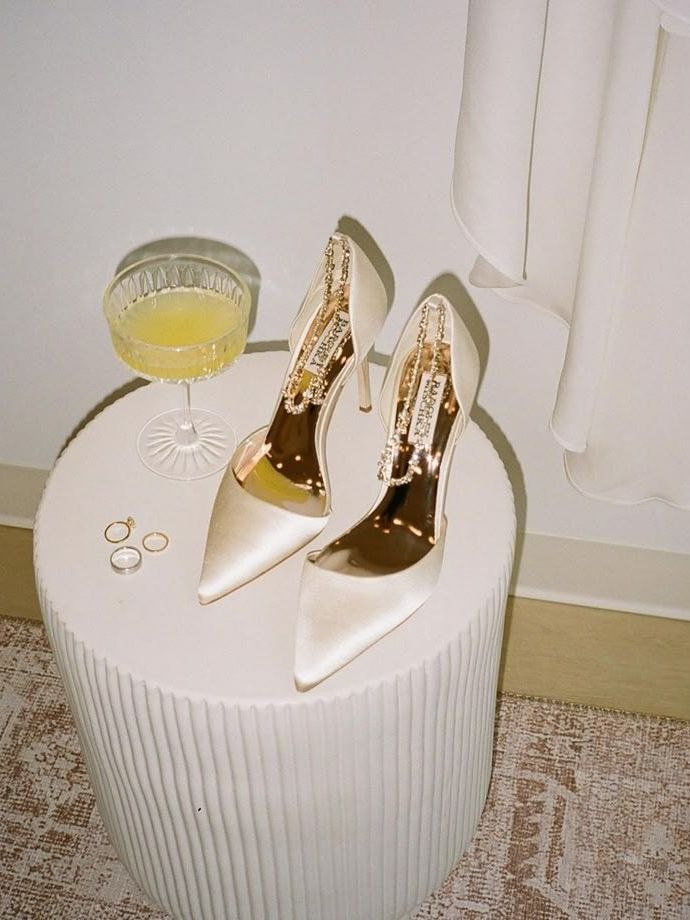
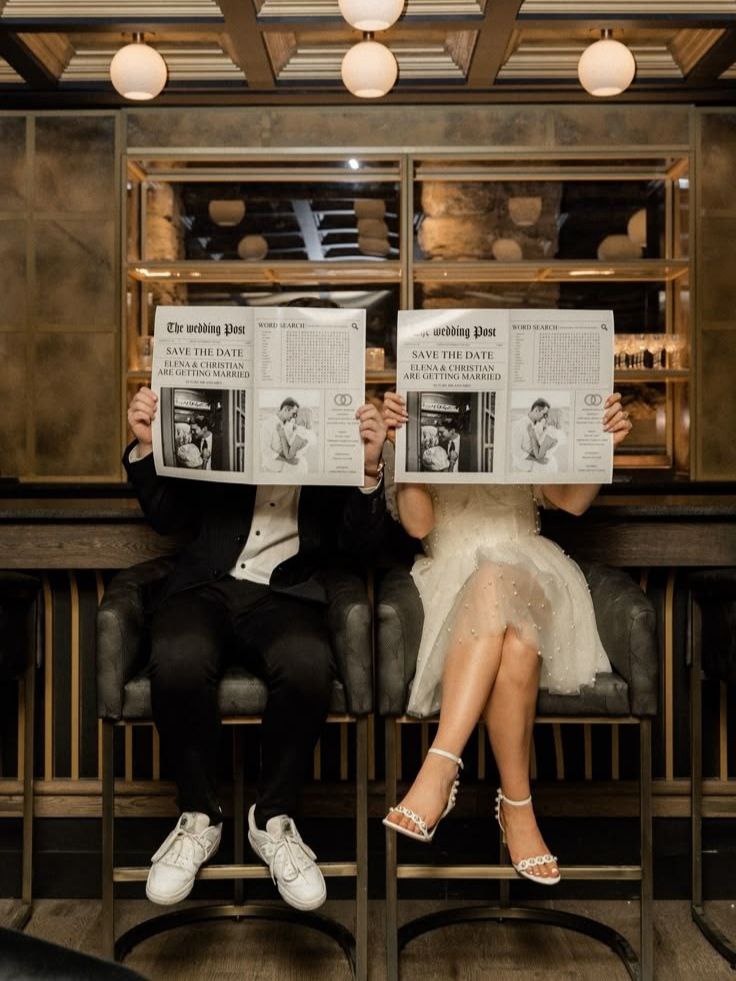
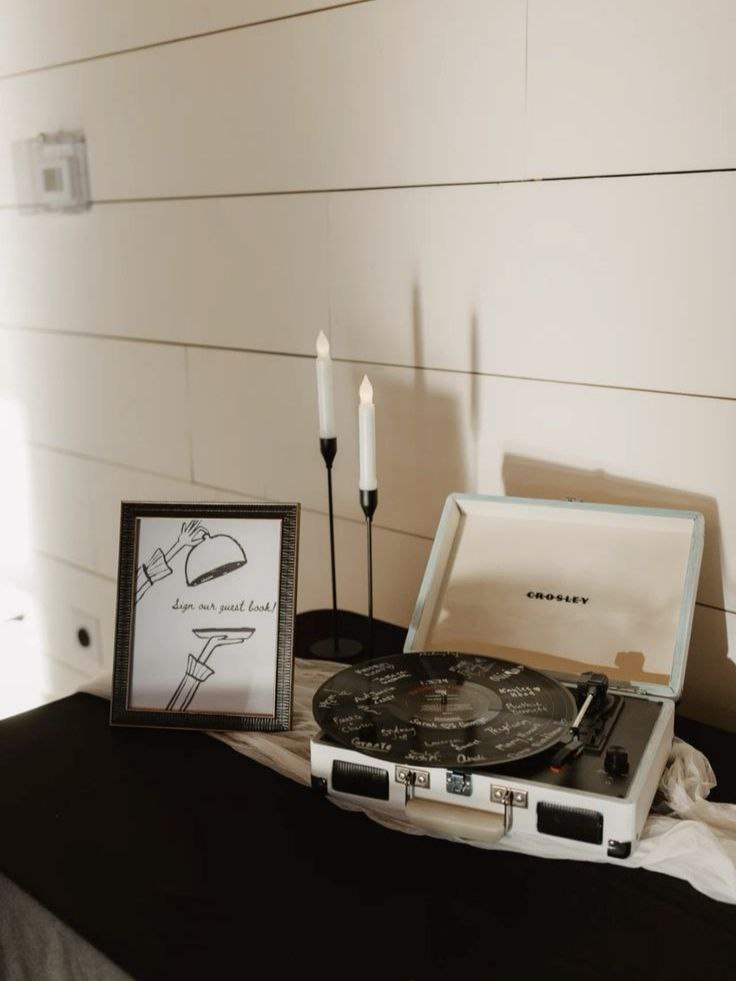
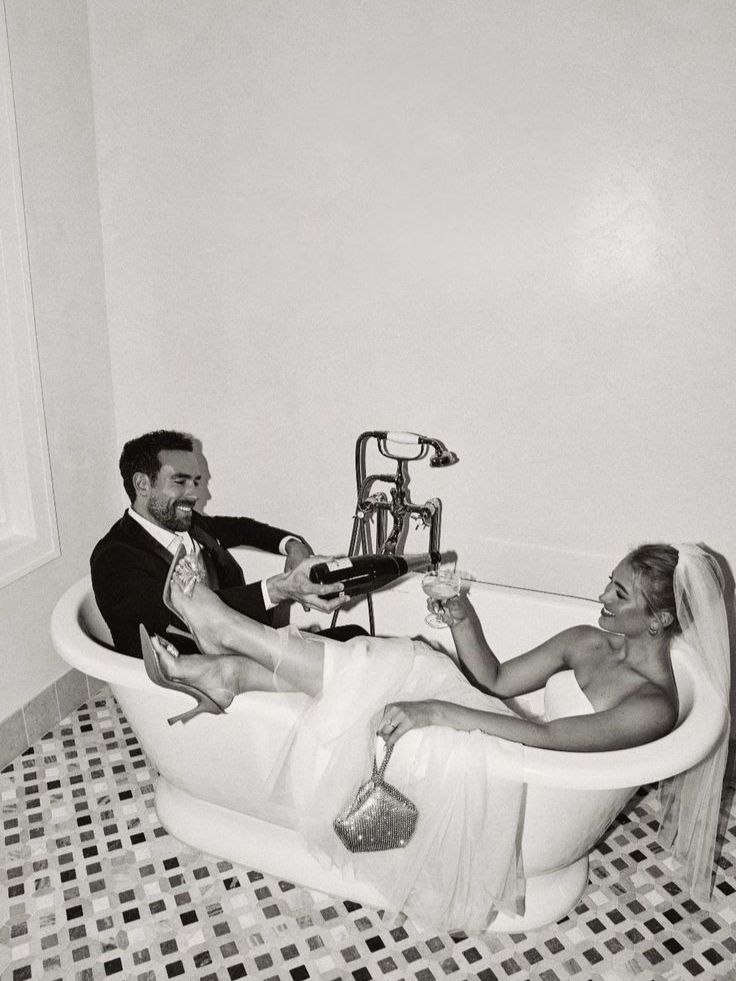
Key Questions to Ask Your Photographer
Before booking a multicultural wedding photographer, ask the right questions to ensure they can meet your needs.
- Have you photographed multicultural weddings before?
- Do you have experience with our specific cultural traditions?
- Can you show us a portfolio with multicultural weddings similar to ours?
- Are you comfortable capturing candid vs. posed moments?
- Do you know which moments in our ceremonies are the most significant?
- Are there any restrictions or cultural sensitivities you should be aware of?
- Can you adjust your approach if certain rituals require minimal disruption?
- Are you experienced in photographing bilingual or multilingual weddings?
- How do you handle weddings with multiple ceremonies and outfit changes?
- Do you have a second shooter to help cover different traditions happening simultaneously?
A great multicultural wedding photographer needs to be quick, adaptable, and able to capture traditions in an artistic yet authentic way.







